- Search the site GO Please fill out this field.
- Newsletters
- Health Conditions A-Z
- Digestive Disorders

3 Ways To Prevent and Relieve Travel Constipation
Barbara Brody is a New York-based freelance writer and editor who specializes in health and wellness.
:max_bytes(150000):strip_icc():format(webp)/BBheadshot2019-2000-68730efb089e4966a6f66cbaaa0fad8a.jpg)
Constipation describes when a person hasn't had a bowel movement in a few days. However, having a lack of bowel movements on a trip is sometimes called travel constipation or vacation constipation.
Travel constipation can be inconvenient and uncomfortable, but staying hydrated and moving around as much as possible are a few ways to get relief. Here's more about how to get rid of constipation and prevent it from happening—especially when you're on vacation.
What Causes Constipation?
A few things can cause constipation , and you may be constipated because of more than one cause at a time. The following can result in constipation:
- Certain medicines or vitamins
- Functional GI disorders (e.g., irritable bowel syndrome )
- Delayed colon emptying due to pelvic floor disorders or colon surgery
- Lack of fiber in your diet or water drinking
- Not going to the restroom when you feel the urge to go
- Reduced physical activity
- Slow stool movement through the colon
What Causes Constipation When You Travel?
Vacation constipation can happen because:
- Your bowels aren't used to the destination.
- Your sleep has been disrupted—potentially due to factors like changing time zones
- You're eating differently than you do at home.
- You're taking a long road trip or plane ride with limited access to bathrooms.
Constipation Symptoms
Signs that you may be constipated are:
- Having less than three bowel movements weekly
- Having painful or difficult-to-pass bowel movements
- Feeling that you haven't completed a bowel movement
- Passing dry, hard, lumpy stool
- Straining when you have a bowel movement
How To Prevent and Relieve Travel Constipation
While vacation constipation isn't the worst thing that can happen when you're away from home, it's not exactly fun. Luckily, there are ways to prevent or relieve constipation if it strikes. Here's your three-part plan.
1. Consider Probiotics Before Your Trip
It couldn't hurt to take a probiotic supplement or eat yogurt with live cultures before you hit the road. More research on the effectiveness of probiotics for constipation is necessary.
Some probiotics, however, had shown effectiveness in trials. For best results, get into the habit of consuming probiotics for at least a few days before you leave home and continue throughout your time away. Other supplements, such as fiber supplements containing pectin and psyllium, are also available to help with constipation.
However, remember that the FDA minimally regulates supplements, which may or may not be suitable for you. Additionally, supplement effects vary individually according to type, dosage, and frequency. They can also interact with any medications you are taking, so speak with a healthcare provider or pharmacist before starting any supplements.
2. Get Out of Your Seat Often While in Transit
Not moving enough can result in constipation. Get up and walk the aisles to keep the blood flowing in your legs as well as in your gut if you're flying. For car travel, take frequent breaks to stretch your legs for a few minutes.
3. Move, Eat, and Drink Lots of Water at Your Destination
How often you move and what you consume are essential for preventing constipation during your trip. Keep the following in mind:
- Get a good night's rest at the end of each day.
- Sip water throughout the day and your vacation.
- Try to incorporate fiber-rich foods like fruit, vegetables, oatmeal, and lentils into each day while indulging and sampling local delicacies.
- Walk around as much as possible.
When To See a Healthcare Provider
Contact a healthcare provider if you experience the following with or related to constipation:
- Bloody stool or bleeding from your rectum
- Lack of a bowel movement in three days
- Nausea or vomiting
- Stomach pain
A Quick Review
Different things can cause constipation, but travel constipation may result from spending a lot of time sitting and not drinking enough water during the trip. However, making opportunities to move, eating fiber-rich foods, and considering a probiotic can help relieve or prevent vacation constipation. Finally, see a healthcare provider for constipation signs that persist or accompany other symptoms like nausea and bloating.
MedlinePlus. Constipation - self-care .
National Institute of Diabetes and Digestive and Kidney Diseases. Symptoms & causes of constipation .
Duboc H, Coffin B, Siproudhis L. Disruption of circadian rhythms and gut motility: an overview of underlying mechanisms and associated pathologies . Journal of Clinical Gastroenterology . 2020;54(5):405-414. doi:10.1097/MCG.0000000000001333
Yamamoto S, Kawamura Y, Yamamoto K, et al. Internet survey of Japanese patients with chronic constipation: focus on correlations between sleep quality, symptom severity, and quality of life . J Neurogastroenterol Motil . 2021;27(4):602-611.
Dimidi E, Scott SM, Whelan K. Probiotics and constipation: Mechanisms of action, evidence for effectiveness and utilisation by patients and healthcare professionals . Proceedings of the Nutrition Society . 2020;79(1):147-157. doi:10.1017/S0029665119000934
van der Schoot A, Drysdale C, Whelan K, Dimidi E. The effect of fiber supplementation on chronic constipation in adults: an updated systematic review and meta-analysis of randomized controlled trials . The American Journal of Clinical Nutrition . 2022;116(4):953-969. doi:10.1093/ajcn/nqac184
Related Articles
- Conditionally
- Newsletter Signup
5 Ways To Keep Travel From Messing With Your Poop
By Korin Miller

It's a common travel issue: You leave for a trip, and suddenly your bowels are out of whack. Maybe you go two days without pooping while you used to go twice a day, or you can’t go at all—whatever it is, you’re not pooping like you used to.
While it’s annoying, it’s the opposite of rare. “A lot of it is due to a change in routine,” Kyle Staller, M.D., a gastroenterologist at Massachusetts General Hospital, tells SELF. Your colon has a rhythm just like the rest of your body, he explains. When you wake up, your colon wakes up, and when you eat, it has more activity (which explains why you may have your morning poo an hour or so after you eat breakfast). But when you travel, your routine gets a bit messed up—and consequently, so does your colon—especially if you change time zones. “Those cues that your body uses to know when to go are shifted,” says Staller. “Now that timing is off, and your body has to readjust.” Unfortunately, that can cause you to poop less than normal or to have difficulty pooping at all.
Luckily, there are a few things you can do about it:
Dehydration can be a big problem when you travel, and that can impact your colon. “[Airplanes are] exceptionally dry,” Gina Keatley , a New York-based C.D.N., tells SELF. “This means that you are losing more moisture to the air than you are used to, and it dries you out.” Then there's the fact that you tend to drink less water while you travel because you don’t want to pee as much. That’s why Keatley recommends taking in more fluids than usual the day before you travel and trying to keep your fluid intake fairly normal when you’re actually traveling. You can also load up on hydrating foods like watermelon and celery to help things along.
While a mid-flight cocktail is tempting, it can dehydrate you even more. “That can cause trouble,” Staller says. If you are going to drink alcohol, it's smart to focus even more on drinking enough water to ensure you're properly hydrated.
If you know you tend to get constipated when you travel , Staller says it’s important for you to increase your fiber intake. That can be in the way of traditional fiber sources , like whole wheat pasta, or via fiber supplements, like Metamucil. “You may consider taking one of these right around the time that you’re traveling,” Staller says. If you aren't prone to constipation but do tend to struggle to poo when you travel, just try to eat like you normally do, Keatley says.
If you’re sharing a small space with people, you probably don’t feel as comfortable pooping as you would if you were at home. But ignoring cues that you have to go and holding it in can lead to constipation, Staller says. He has patients who will go in a hotel lobby bathroom instead of their hotel room, simply because they feel more comfortable and relaxed there. It’s worth a try if you don’t feel OK going in close quarters. “Whatever you do, try not to suppress those natural cues to go,” Staller says.
Travel can be stressful, and in some cases that can activate your sympathetic nervous system (i.e. the fight or flight reaction), putting digestion on the back burner, Keatley says—and that can mess with your ability to poop. So, try to relax. “Less stress will keep everything moving,” Keatley says.
Follow these tips, and travel-related pooping issues should become a thing of the past.
Watch: When You Have To Poop At Work

SELF does not provide medical advice, diagnosis, or treatment. Any information published on this website or by this brand is not intended as a substitute for medical advice, and you should not take any action before consulting with a healthcare professional.

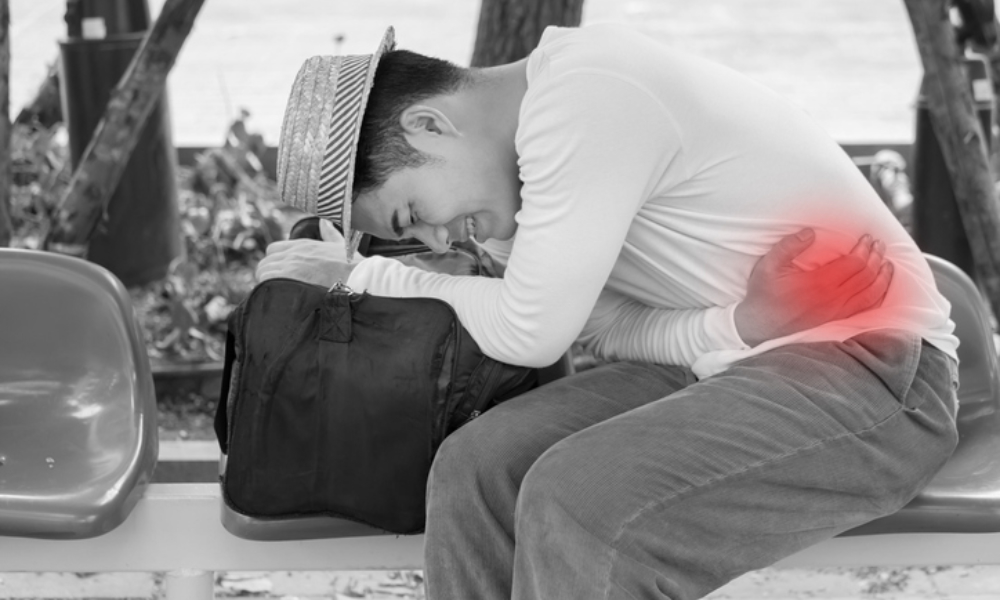
How to Successfully Avoid Travel Constipation
Travel constipation is a genuine condition, and if you’ve ever been on vacation beforehand noticed that you had trouble with regular bowel movements—or if you couldn’t go at all—you likely had a case of travel constipation. However, knowing a little more about what causes travel constipation, and constipation in general, can help you avoid being uncomfortable when you’re supposed to be avoiding your vacation. Also, there are ways to remedy constipation if you find you’re already struggling with it. Read on to learn more about the different types of constipation, how to avoid it, and what you can do to cure it, particularly if you’re traveling or on vacation.
What Is Constipation and What Causes Constipation?
It’s important to understand that everyone’s body is different and so is their diet. However, constipation is generally defined as having less than three bowel movements in one week. As our bodies produce waste, stools need to be able to pass through the colon in a relatively quick manner. If they don’t, they become hard, dry, and difficult to pass. When this happens, patients often strain to pass the stool, which can be uncomfortable and even cause medical problems. The colon needs lubrication (water) in order to pass the stool, so if someone doesn’t drink enough water, this can be a primary cause of occasional bouts of constipation. Also, a diet low in fiber can cause constipation as well. Other causes include living a sedentary lifestyle, holding bowel movements for too long, and having high-stress levels.
Chronic constipation is correlated with some significant diseases, and if you suffer from chronic constipation and over-the-counter remedies do not help, you should speak with your physician immediately. Most often, constipation is just a sign of not enough water, fiber, or exercise, but if it is chronic, it could be a marker for:
- Intestinal blockage
- Colon cancer
- Rectal cancer
- Parkinson’s disease
- Narrowing of the colon
If you suspect something is wrong, it’s always best to check with your healthcare provider, just in case.
What Are the Causes of Travel Constipation?
The root causes of travel constipation are similar to that of general constipation, but there are some significant differences that are especially important when it comes to prevention.
- Dehydration . Just like with regular bouts of constipation, you’re bound to be more dehydrated than normal while traveling. Not only might you not be paying attention to your daily water intake, but you may also be trying to boost your energy with excess caffeine or overindulging in alcoholic beverages, both of which can dehydrate you even more.
- Lack of movement . Living a sedentary lifestyle can contribute to constipation, but when you’re traveling and stuck in a seat for hours, whether it be a train, plane, or car, it can throw your digestive system out of whack.
- Change in routine . Our bodies become used to our daily routines and traveling certainly throws any type of normalcy off.
- Eating junk food . If you typically eat a healthy diet and suddenly turn to junk food on the go because it’s quick and easy when traveling, this can shock your digestive system, and contribute to constipation, particularly if you’re eating no fiber.
How to Prevent Constipation
You can prevent constipation, particularly travel constipation, by being very mindful of your habits when you travel. Before you travel, it’s a wise idea to begin a probiotics regimen , as these can promote good gut bacteria. Also, if you’re heading somewhere, such as a different time zone, you can start preparing your body ahead of time by alternating your sleep schedule. This way, there isn’t such a sudden shock and a change of routine when you do arrive.
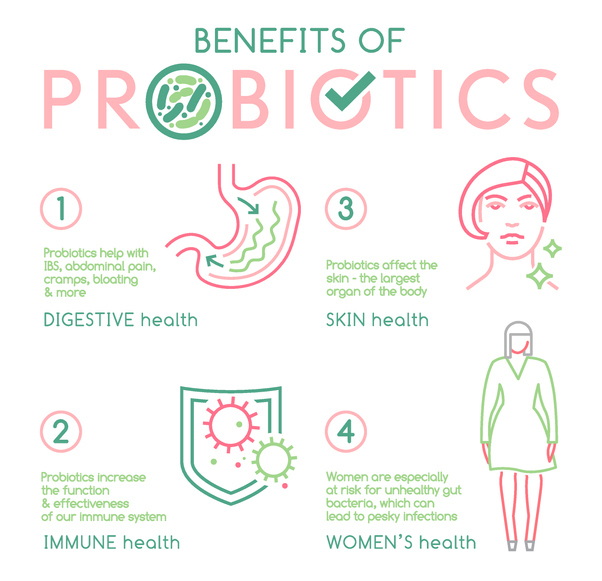
During transit, you want to make sure that you get up and move as often as possible. This can be tough when you don’t want to pull over when you’re making good time, or you don’t want to stand up on an airplane. You must keep the body moving when you’re sitting for long periods, even if it’s to stretch your legs. Also, don’t hold bowel movements in. If there’s a line for the bathroom, it’s best that you wait in line and not put it off.
Drink plenty of water and opt for fiber-rich foods while you’re traveling. Of course, when you’re on vacation, you’ll want to enjoy some treats, but don’t forget to reach for foods such as oatmeal, apples, pears, and nuts. You can also pack fiber supplements if you feel you won’t get enough fiber from food. Also, it’s a good idea to moderate your caffeine and alcohol intake, as these will dehydrate you.
What Are Constipation Symptoms and How Do I Relieve Constipation?
Constipation is generally described as passing less than three stools per week; however, some patients may feel bothered if they don’t pass a daily stool, and they may wish to speak to their provider about that, as everyone’s body is different. Other symptoms include:
- Having hard, dry, or lumpy stools
- Straining when having a bowel movement
- Feeling “full” even after having a bowel movement
If these symptoms persist beyond traveling, you should contact your physician.
If you’re traveling and you’re simply a little dehydrated, sometimes the problem can be fixed with drinking water and moving around. You may also want to try a stool softener. However, if that doesn’t work, the next thing you could try would be a laxative. It’s important to know that there are two types of laxatives: osmosis and stimulants. It’s always best to try the osmotics first because they are gentler on the digestive system.
Osmotics are known by the brand names Miralax, Milk of Magnesia, or Metamucil, and these work by causing more water to build up in the colon, which makes it easier for the stool to pass. Often used in combination with a stool softener, these can be greatly effective but can take from 12-24 hours to work.
Stimulant laxatives work a little faster, typically within 6 to 8 hours. They work by causing contractions in the digestive lining in order to pass the stool. After taking a stimulant, it’s wise to stay close to a bathroom, as the need to go can come on suddenly.
Enemas and suppositories are also an option when it comes to relieving constipation, as well as remedies such as mineral oil.
If you need more information on constipation or constipation relief or need to be seen by a physician, contact us at www.ncdhp.com today. We provide comprehensive, quality care to all of our patients for a variety of gastrointestinal disorders.
Take Control of Your Health
Whether you are looking for preventative care for colon cancer screening or seeking diagnosis and treatment for a gastrointestinal condition, we can help. We provide consultative and procedural services spanning the full spectrum of clinical gastroenterology and hepatology.
Start typing and press enter to search
Best-in-class butt washers with easy, DIY install.

Booty Drying
Your softest, post-spray pat dry crew.

Prop your feet for a ploptimal release.
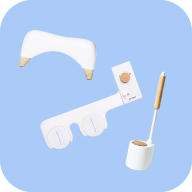
Bundle & Save
Bundle or buy in bulk for a big, wet discount.

Toilet Cleaning
Keep your toilet clean and your planet cleaner.

Make grocery runs weird.

NEW TRAVEL!

benefits of a bidet

Classic 3.0
#1 Gift for Dad
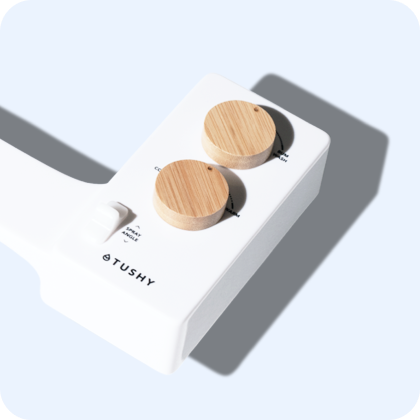
Bidet with warm H20
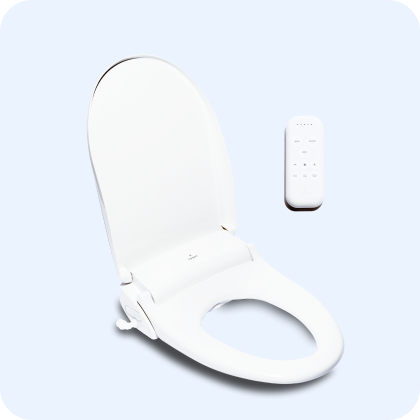
Electric luxe bidet

On-the-go bidet
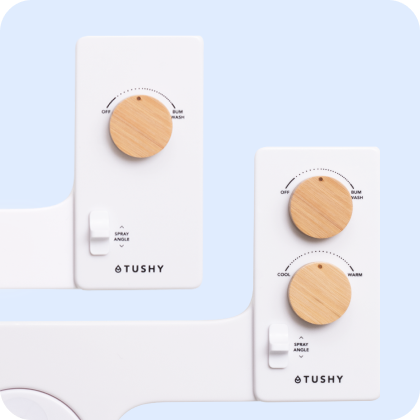
Build your own bundle

Buy in bulk and save a buttload

Toilet Brush
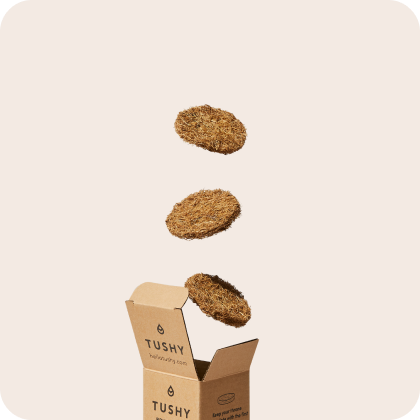
Scrubbing Pads

Shop Butthole Shirt

Shop Clean Butt Society Shirt

Shop Peach Pin

Shop Gift Cards
Your cart is empty
Travel Constipation: Why It Happens & How to Fix It
Corin Wells | 14 Jan, 2021
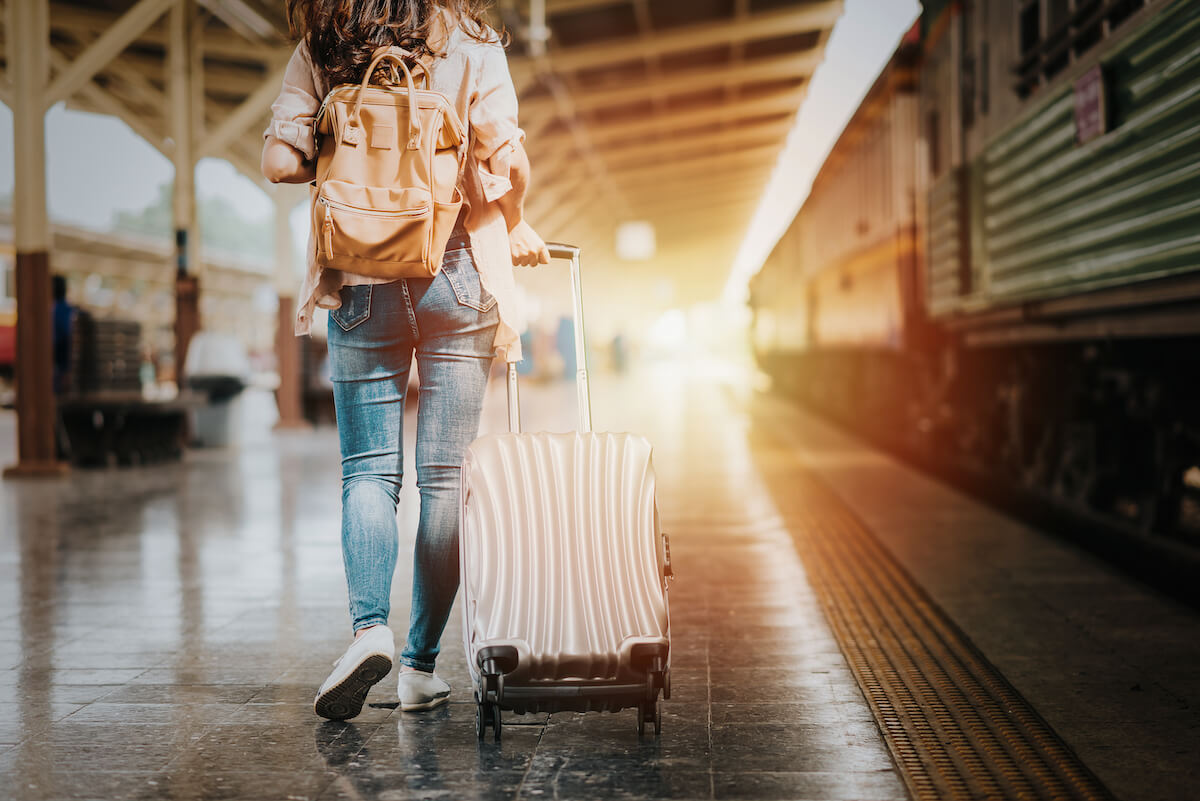
It’s happened to the best of us — you’ve indulged in vacay food and drinks;...
14 Jan, 2021

Why is it So Hard to Enjoy Pooping and Traveling at the Same Time?
Traveling broadens our horizons, but it also tightens our b-holes. Behind pretty much every Insta-worthy travel adventure is a globe-trot-ter with low-grade constipation. While we appreciate the value of jet-setting, we have to ask: why does your hard-earned vacay inevitably harden your poos?
Simply put, our bodies are creatures of habit, and traveling can disrupt pretty much all of our major routines. When you change up patterns like what you eat and drink, and when and how you sleep, your poop takes this as a cue -- to stay cozied up at home in your colon.
Vacation constipation is 100% a real thing, and it can disrupt the many joys of travel. If you’re asking why does travel cause constipation, or you simply want to keep your BMs regular on the road, this blog is a journey especially for you!
Long Flights and Car Rides Limit Physical Movement
Whether you’re flying or driving, a long trip mixes up your routines. Your body is crammed into a smaller-than-usual space, with limited access to water or restrooms.
Even if you’re not normally super active throughout an average non-travel day, you generally have the ability to stretch or refill your water bottle. These simple acts of self care are constrained on the road. Dehydration can def contribute to constipation, and so can cooping up your bod . All together, it’s a recipe for roadblock.
Changes in Routine and/or Time Zone
Your body is used to living in your time zone. All your physical routines and intakes, from sleep to sun to food, are tethered to your timeline. Traveling outside your normal time zone shifts everything, which can take some adjusting for your internal clock. You know that feeling when you have to wake up 3 hours early? That’s kinda the vibe your poo is going through.
Travelers Stress and Anxiety
Stress and anxiety are ground zero for constipation. Every worry from your packing list to making your flight to traffic is sending stress cues to your bod. And on top of that, add the anxiety of pooping in public (which is already a low-key no go). Switching up your routine really switches on your stress.
Overindulging in Different Food and Drinks
This may be the most fun cause of vacation constipation: all the new tastes of travel. Bear with us, we won’t be talking about food and poo together for very long!
Perhaps you’re indulging in new types of cuisine. Or you may be visiting a couple chic cafes a day, while doubling up your normal caffeine intake. The oh-so-delicious treats that are so different than your normal diet? They’re making your body work overtime, which pushes out your normal poop deadlines.
There’s So Much to See, So You Hold it In
No one’s in a hurry to wait in line for a bathroom in Paris. There’s so much more to see! Travelers end up asking themselves questions like… can we fit in one more wing of the museum before we find the WC? And do we have to make another road trip pit stop, or can you hold it till we get there? The traveler’s desire to soak up the sights and/or minimizing travel disruptions can jostle our pooping routines abroad. And routines are the essence of regular #2s .
Be Prepared for Your Next Trip and Prevent Travel Constipation
Whether you’re visiting family or Machu Picchu, you want to enjoy your vacations and trips. Nothing disrupts pleasures of travel more than that annoying voice echoing from your gut. You know the one! It has a whole routine about how much you hate your life because you haven’t pooped in 3 days .
It is possible to travel and poop, we promise. Just make these few preparations:
Vacation Constipation Checklist:
- Keep water on hand at all times, and drink it!
- Probiotics to take daily before and during a trip
- Pack a gentle laxative like Miralax or Colace (just in case)
- Keep fiber snacks like fruits, granola bars, and nuts on hand to snack on
- Try to eat at your usual times (set alarms in your time zone as a reminder)
Stay Hydrated Before, During and After A Trip
To stay hydrated during your next trip, start the day before travel. Make sure you get enough water and electrolytes, which invariably means bringing water with you. Sure, you can’t take a milk jug of H2O through airport security, but you can take an empty reusable bottle and fill it up on the other side.
And when it comes to road trips, drinking enough water means you will need to make pit stops. Set aside your family’s old road trip rules (e.g. no stops!) and allow your bladder to dictate some of the terms of your trip.
During Transit, Move as Often as Possible
We know that airplanes aren’t ideal for movement, and lugging around a heavy carry-on makes it tough to feel light on your feet. But do what you can, where you can. So we’re not telling you to start a flash mob, full-out dance routine at the airport. Just reminding you to move as much as possible. Try exercising before you hit the road or once you arrive, and keep stretching your legs on the regular. Your gut will thank you.
Start Taking Probiotics to Help Maintain Your Gut Health
Probiotics are a gut-health go-to. They can help keep the bacteria in your tummy balanced, which offers only upside for road-weary travelers.
Don’t Overindulge the Entire Time
This is the toughest tip of them all. It can be hard when you’re surrounded by new and delicious treats, and who wouldn’t want to partake in comfort food after all the stress of travel? But it’s worth making an effort not to indulge in exotic foods and drinks for every meal of your travel days. Mix it up with a simple salad here and there to keep your poos traveling on schedule.
Pack Fiber Snacks and Stool Softeners Just to Be Safe
It’s a good idea to bring a little stool support on the road. In your luggage or backpack, bring along f iber-filled snacks like fruit, whole grain crackers and veggies. And keep a gentle laxative on hand just in case. What goes in must come out, and fiber is poop’s friend.
You Can Enjoy Your Vacation with Minimal Travel Constipation
You have our promise that these tips will keep you, well, less constipated. Anyone who tells you they don’t get a little backed up when they travel is, how do you say… lying. With a little preparation and patience however, you can still have somewhat regular bowel movements while on vacation. Simply keep hydrated, move your bod, and stay kind to your b-hole with a TUSHY Travel Portable Bidet .
Related Posts

Why You Poop in the Morning, According to Science
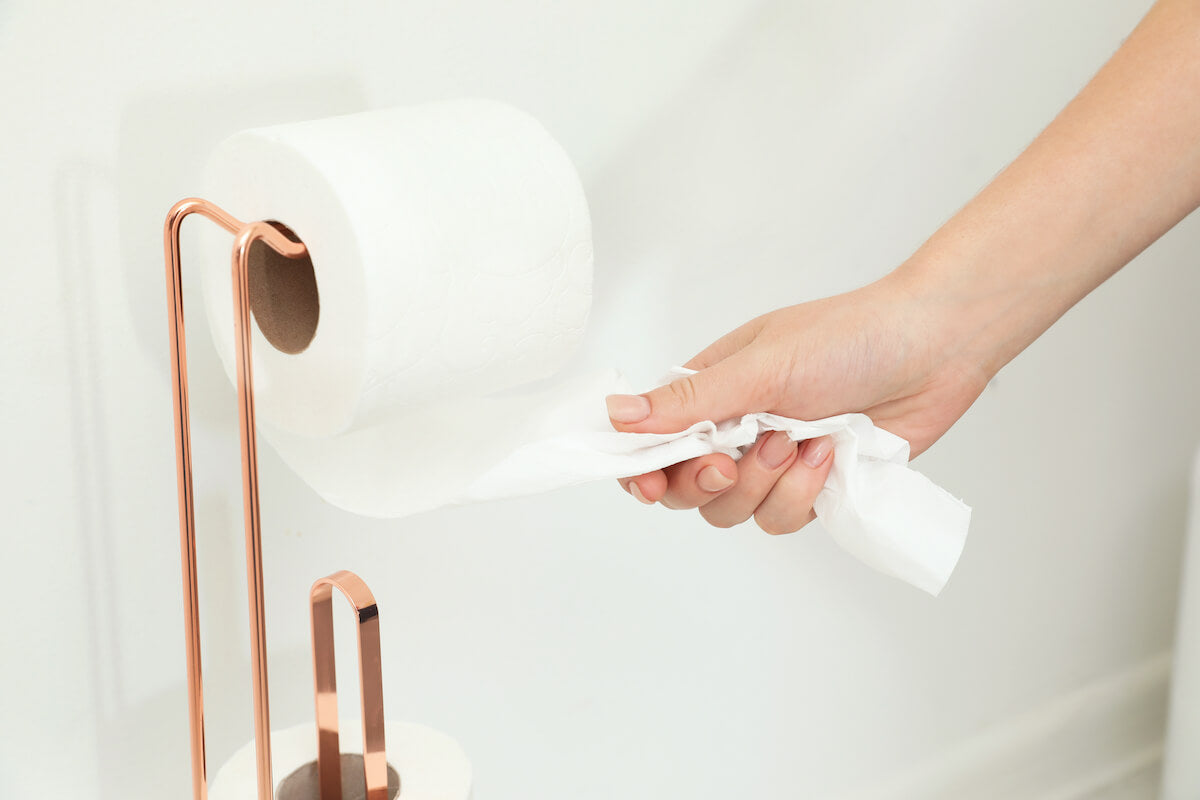
Types of Poop: Appearance, Color, Size and What’s Considered Healthy

What Is An Enema? Types, Uses and Risk Factors
Follow Us Everywhere

Uplevel your hole bathroom experience.
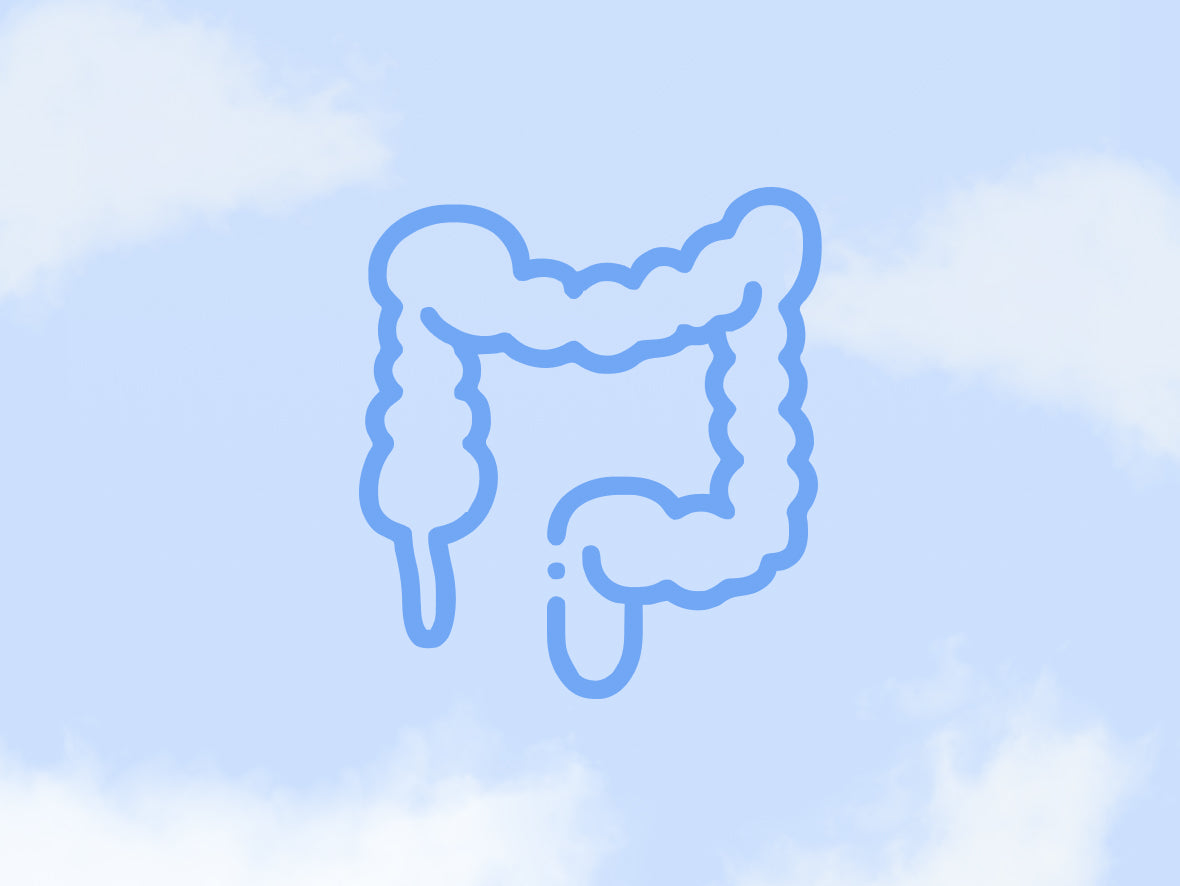
If you're someone who is...
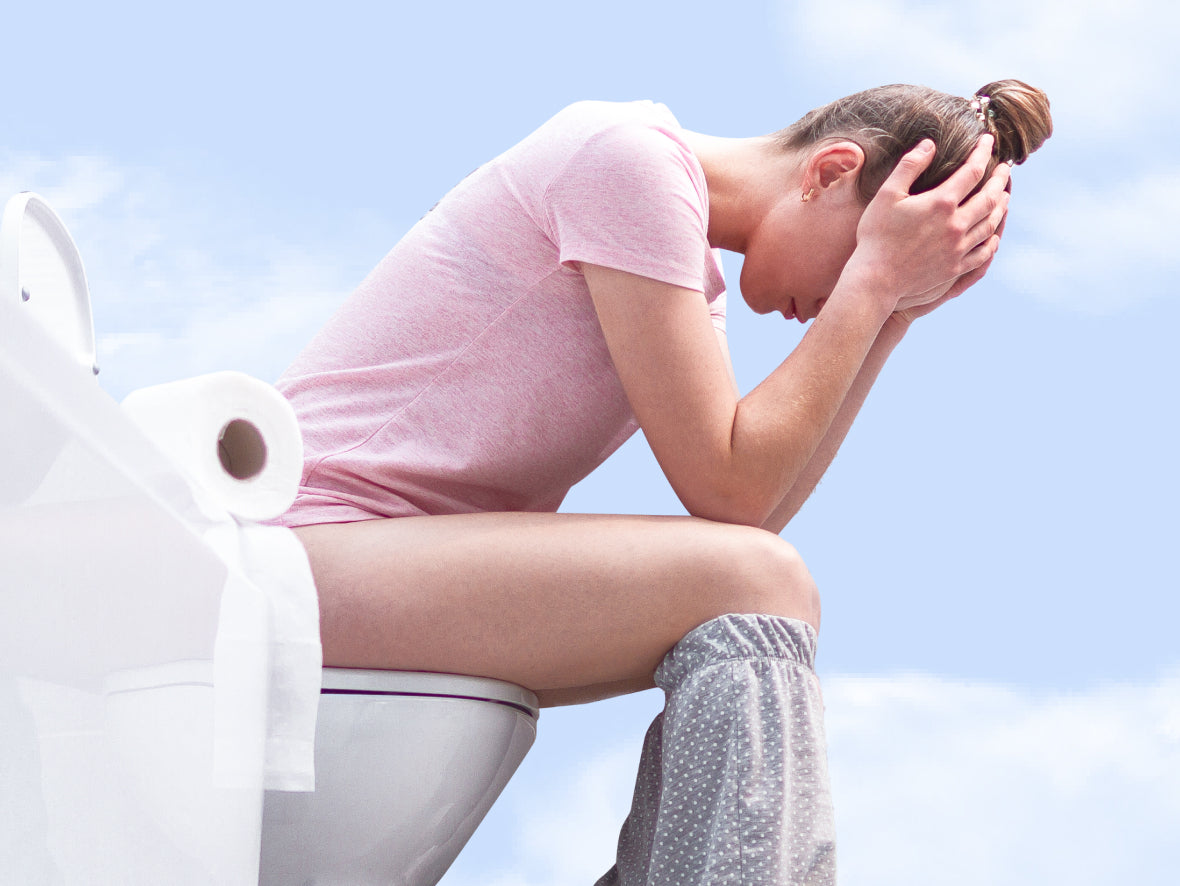
Scene: On the toilet. Sta...
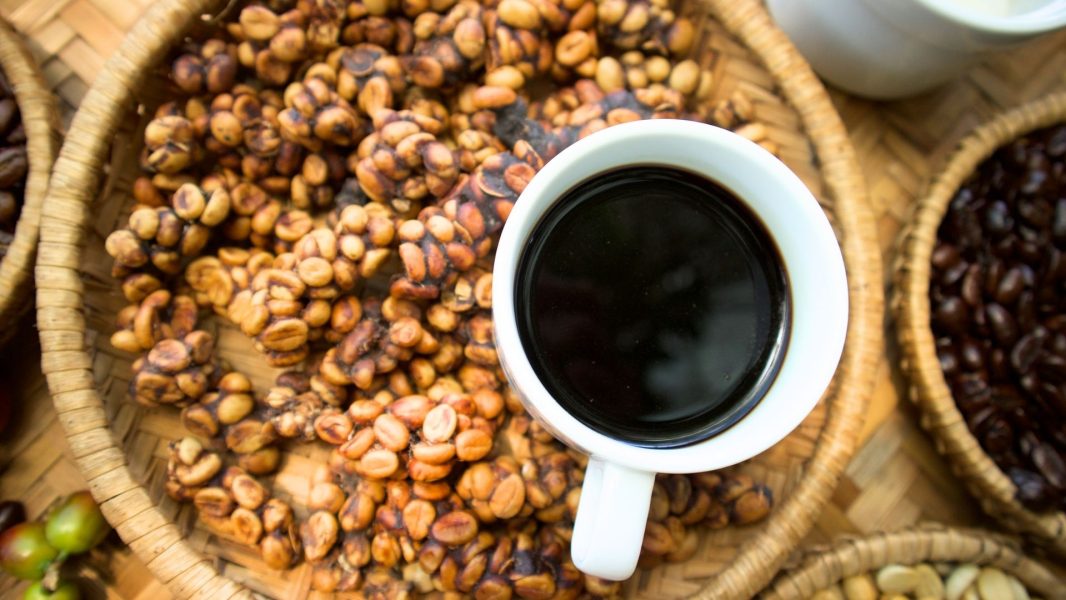
If you found any remnants o...

I know you like to think ...

Hot tamale! Whether you’re ...
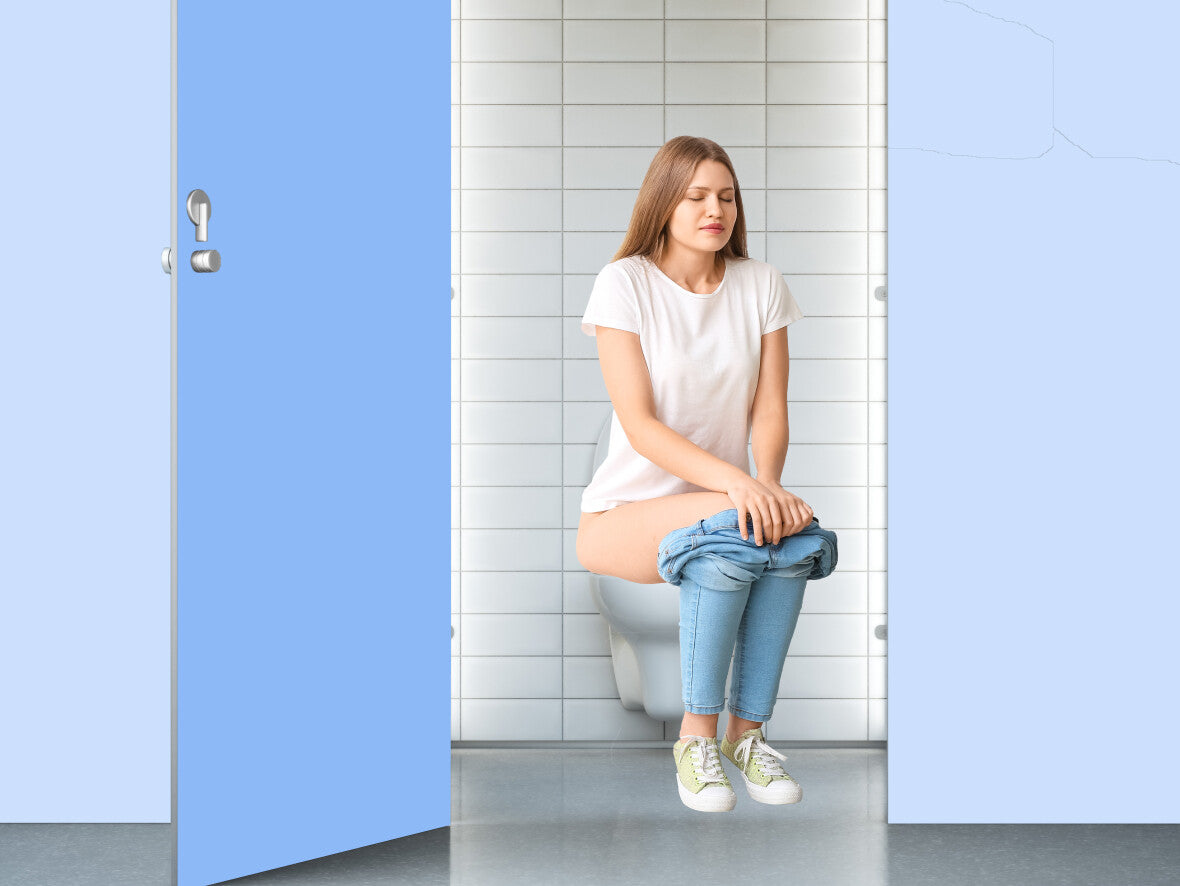
We’d all rather take a dump...
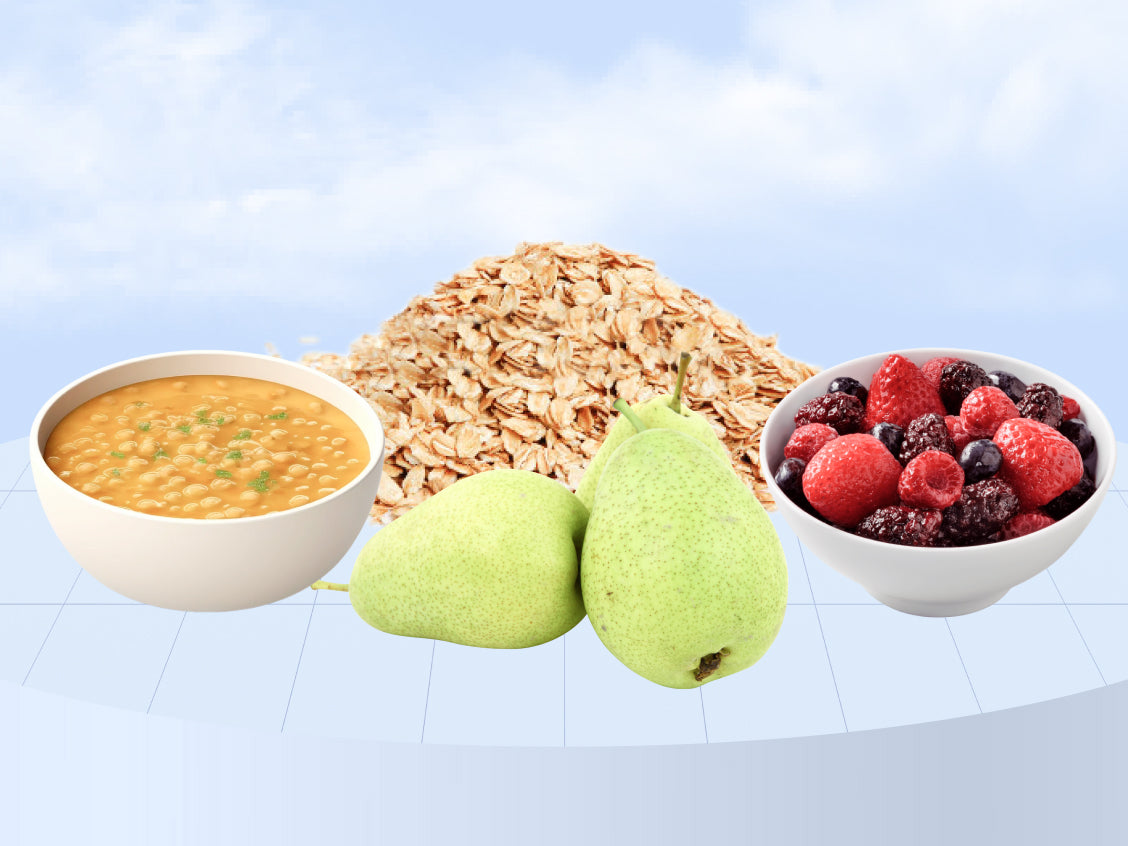
My name is Dr. Andrew Alber...
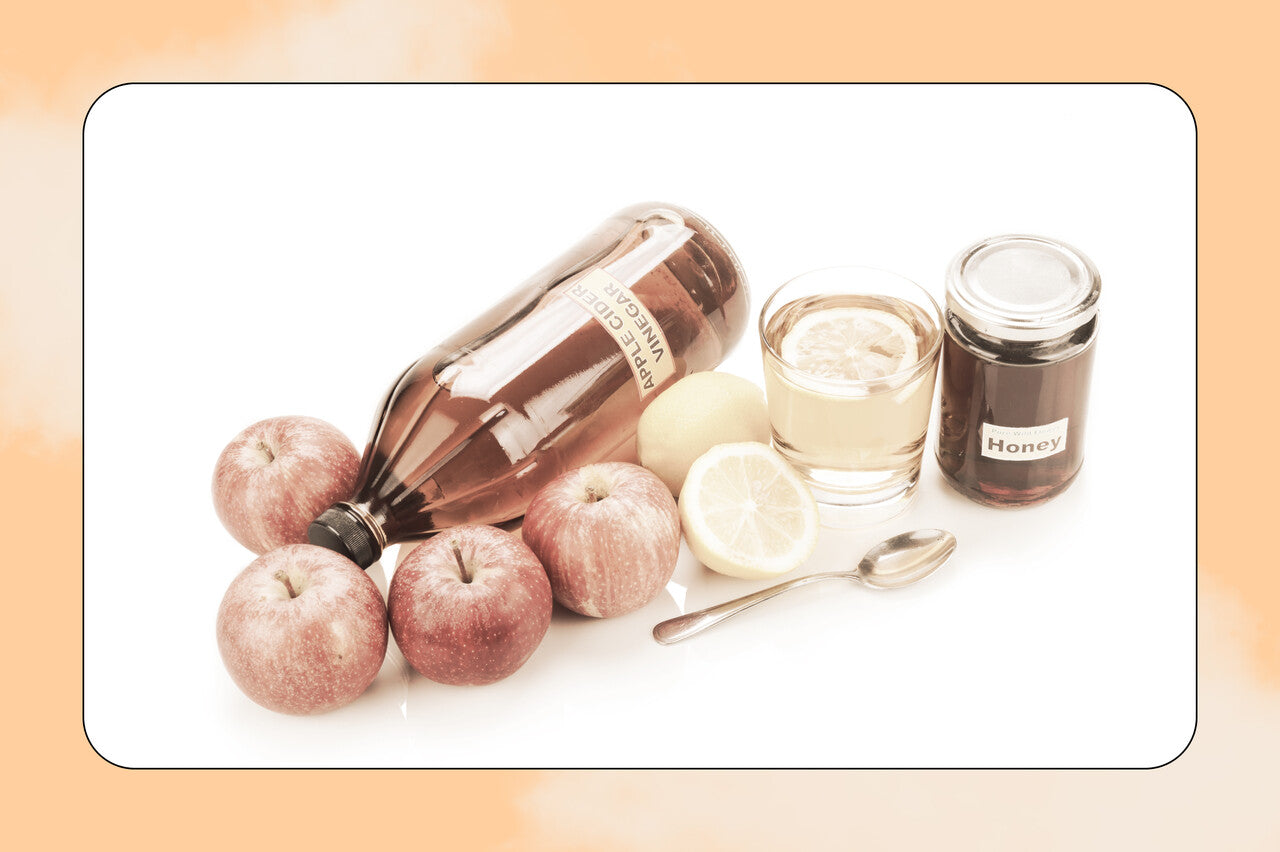
3 Colon Cleanse Drink Rec...

Taking a crap is some of t...
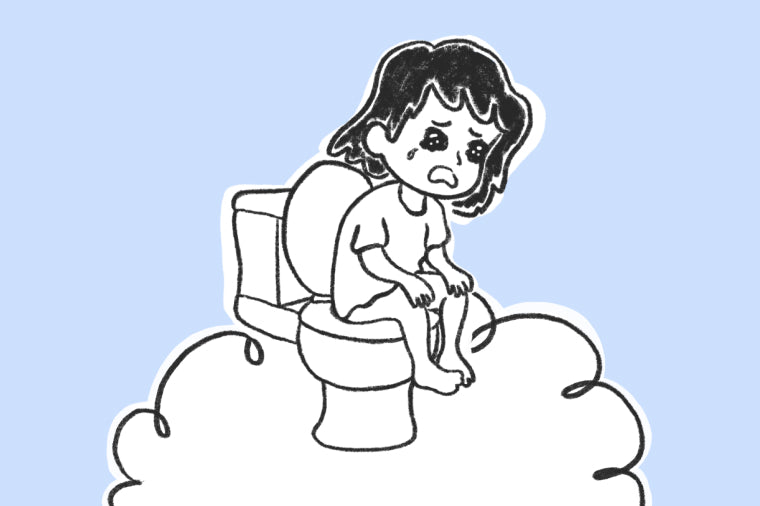
Hot snakes. Devil squirts...
Forget Bacon Egg and Chees...
You’re here because you’v...
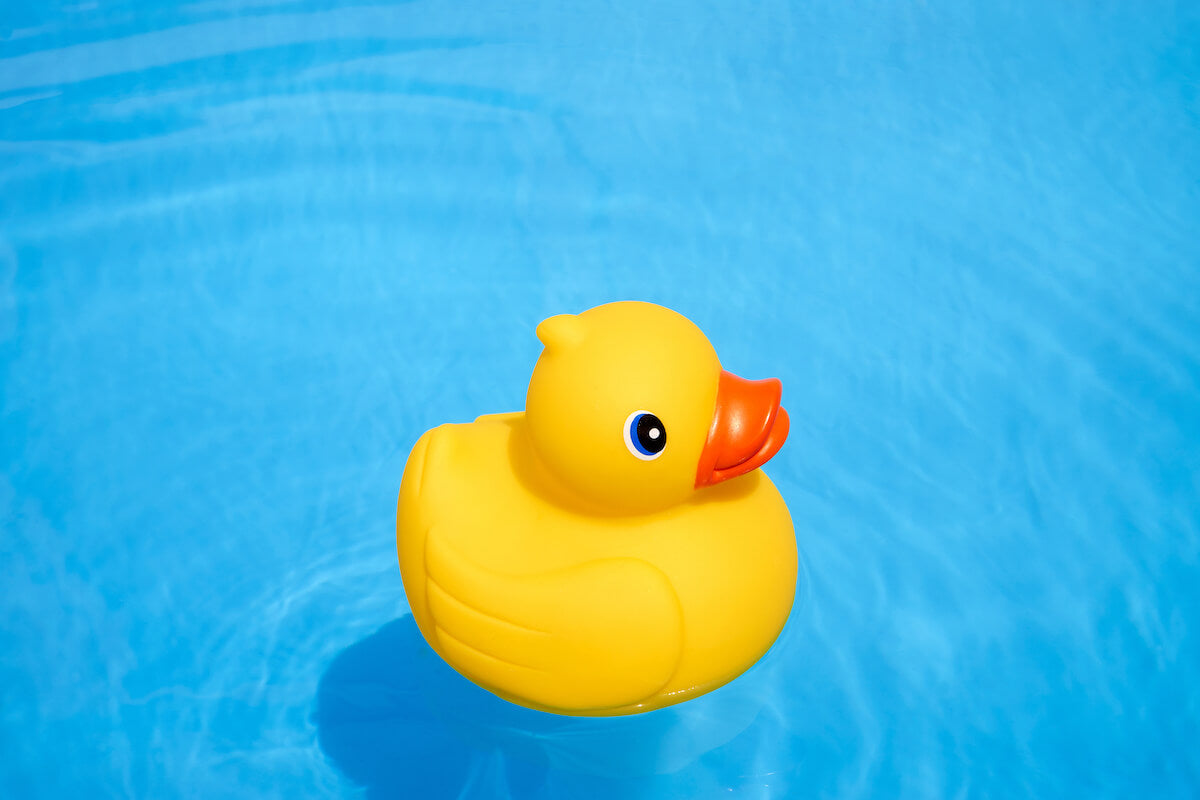
Does your sh*t sail around...
Think about your boi Confu...
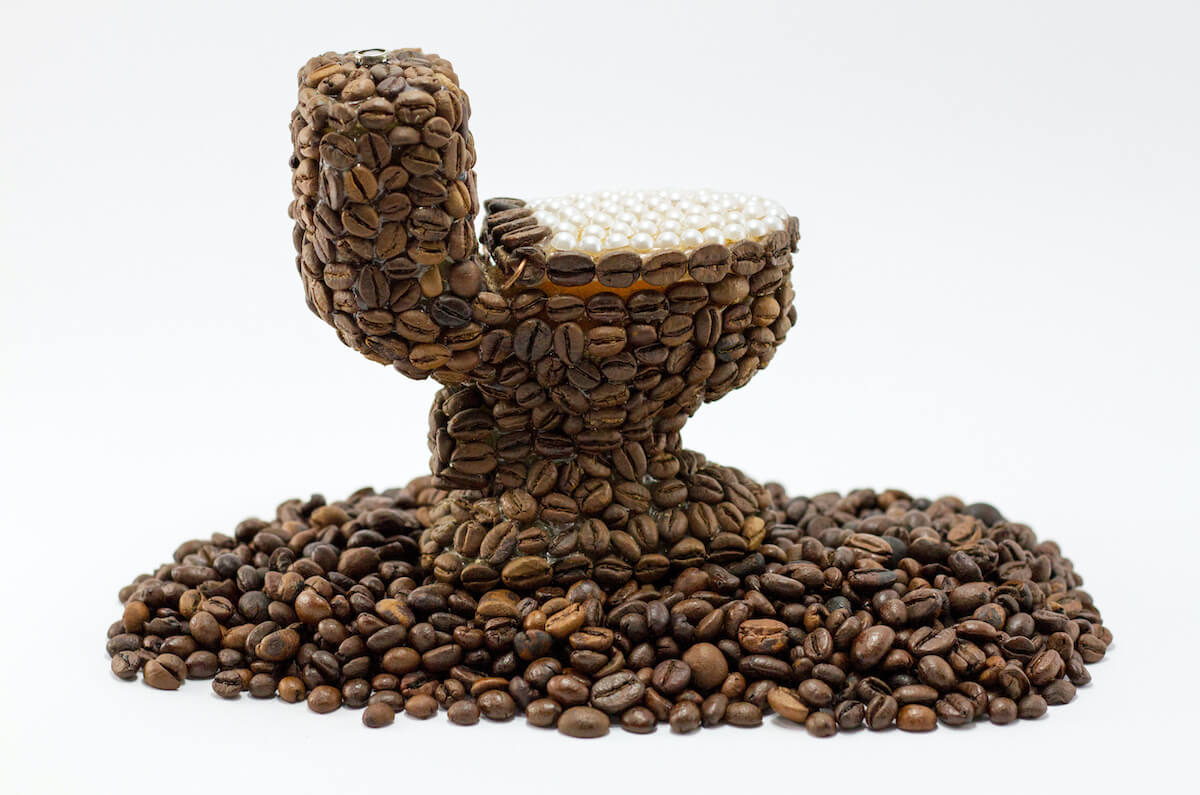
Coffee poops are real. And...
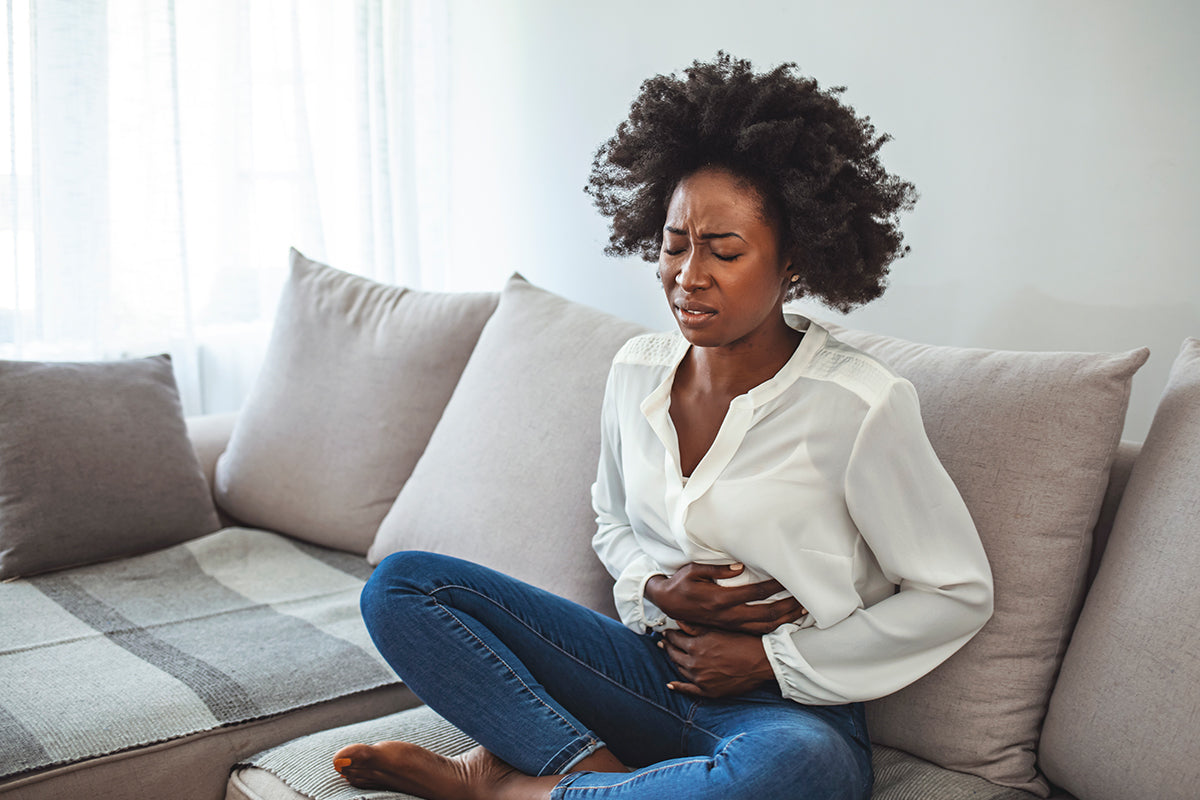
You’ve just eaten a fillin...
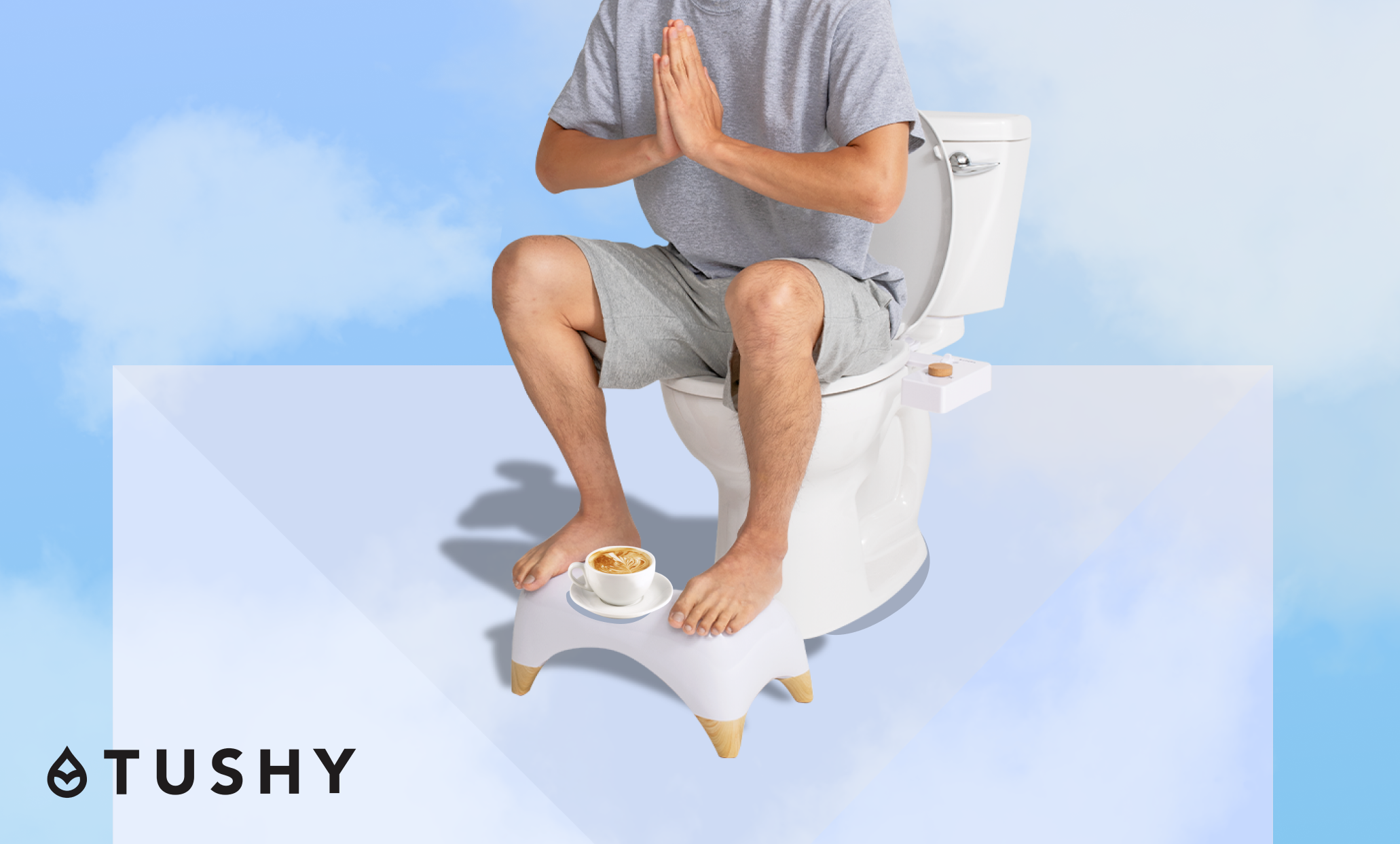
“See that X-ray? You’re fu...
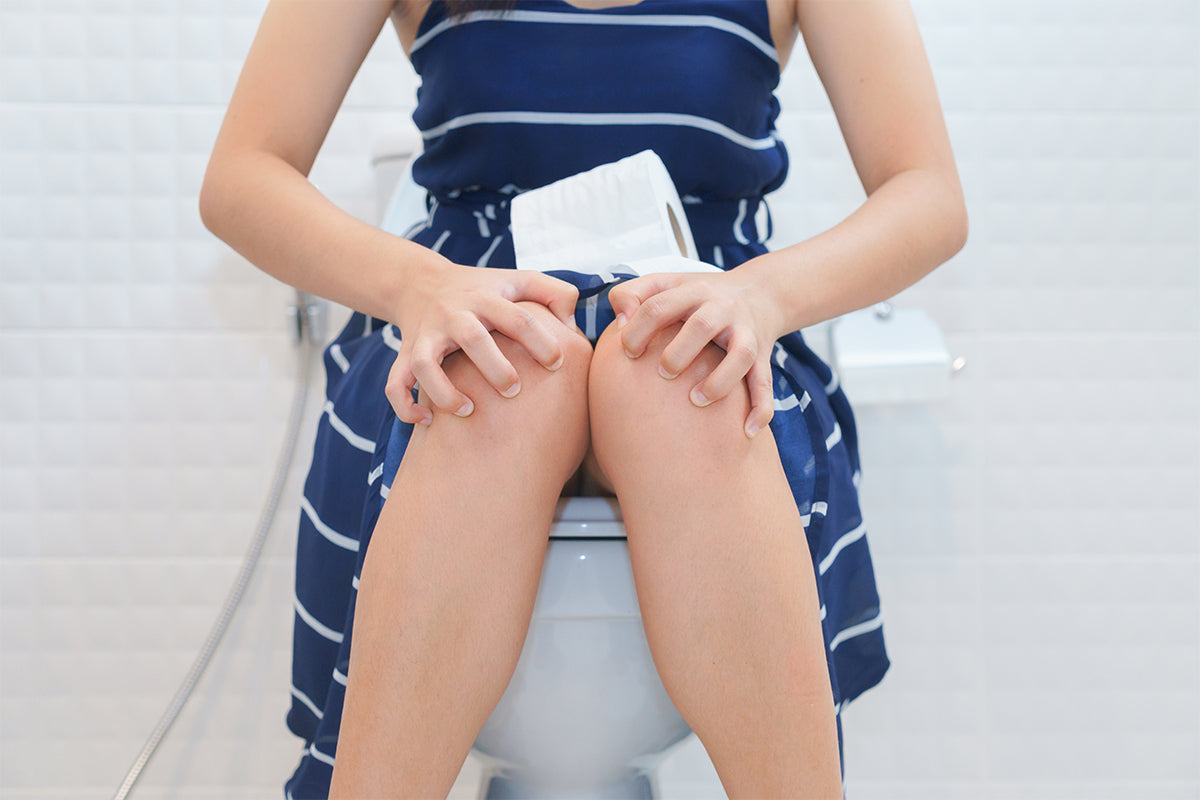
No one wants to be a membe...
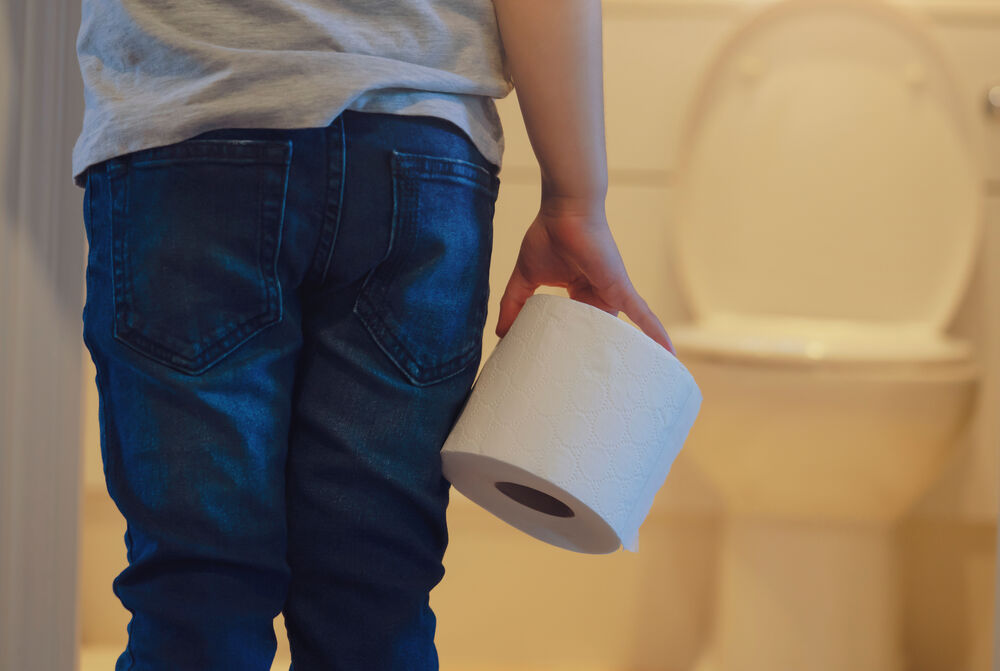
You finally finished potty ...

Congrats, guys! We’re all...
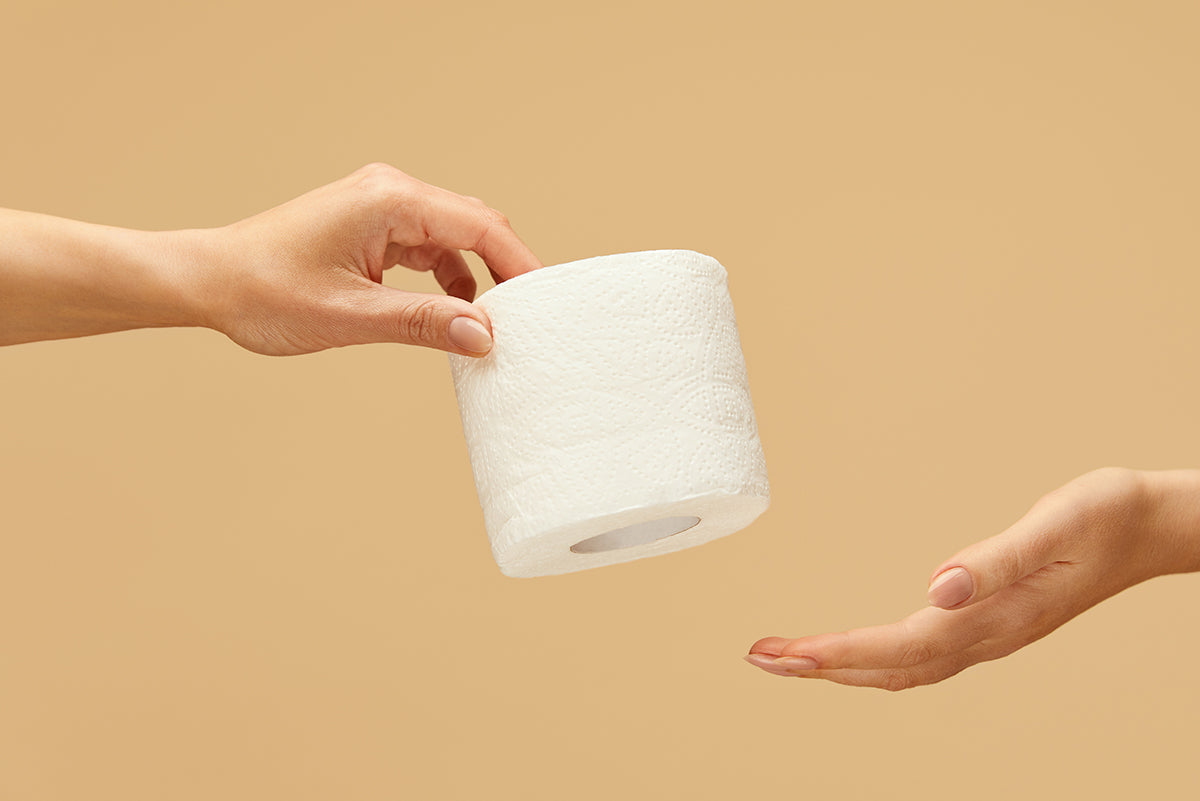
Let’s discuss poop. Everyo...
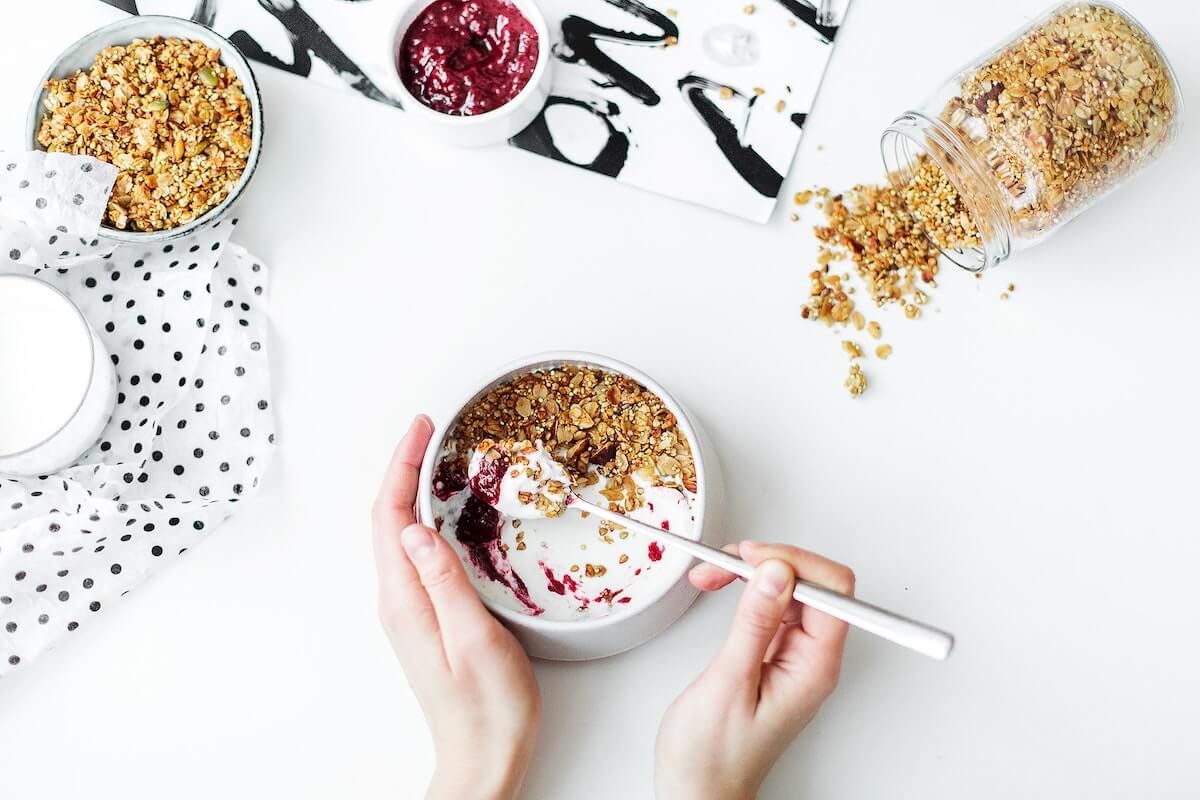
Your Gut is the Source of ...
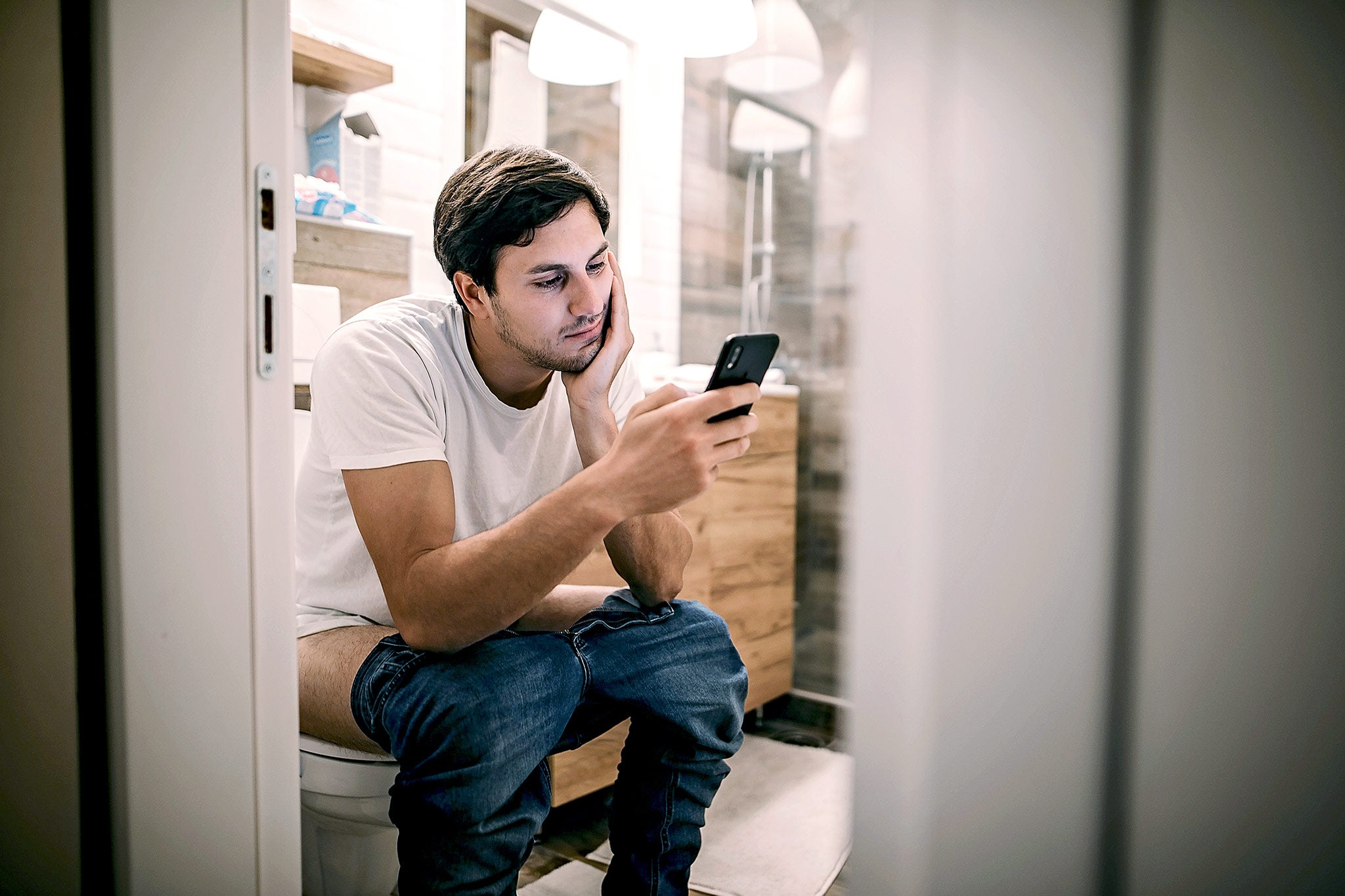
People have lots of differe...
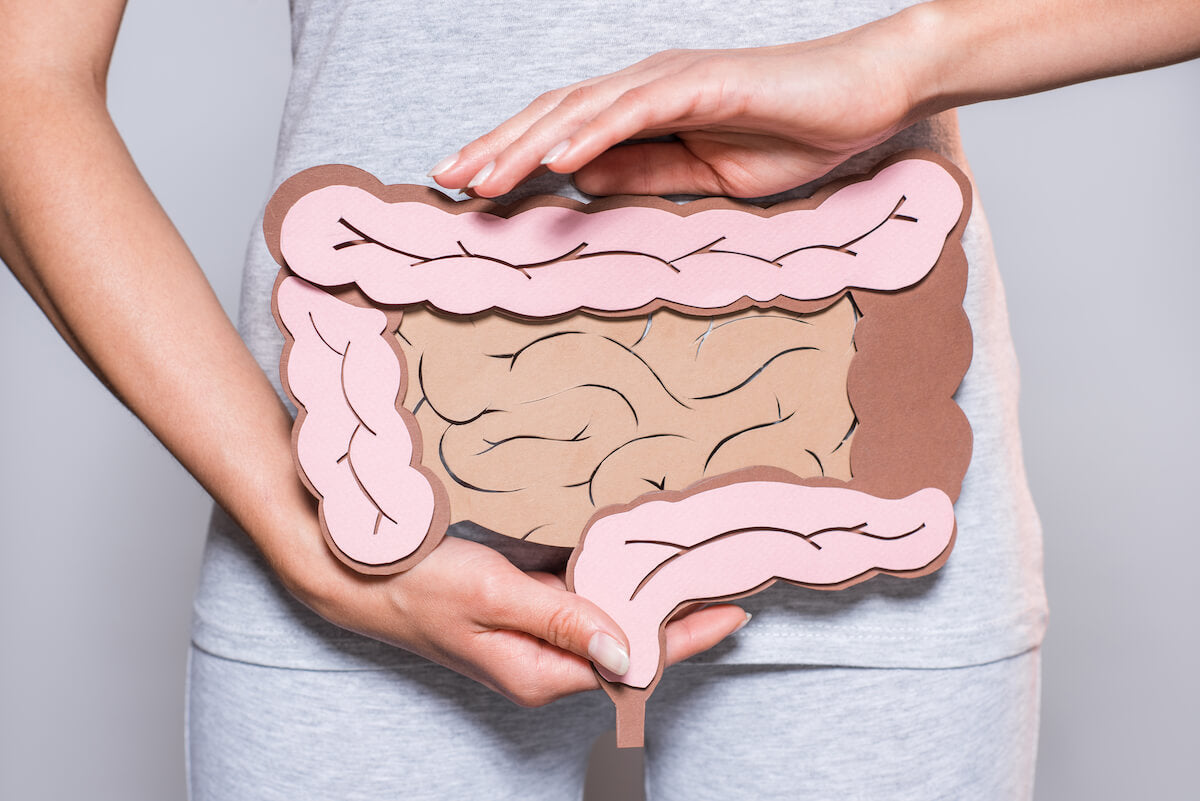
Listen, we’re all feeling ...
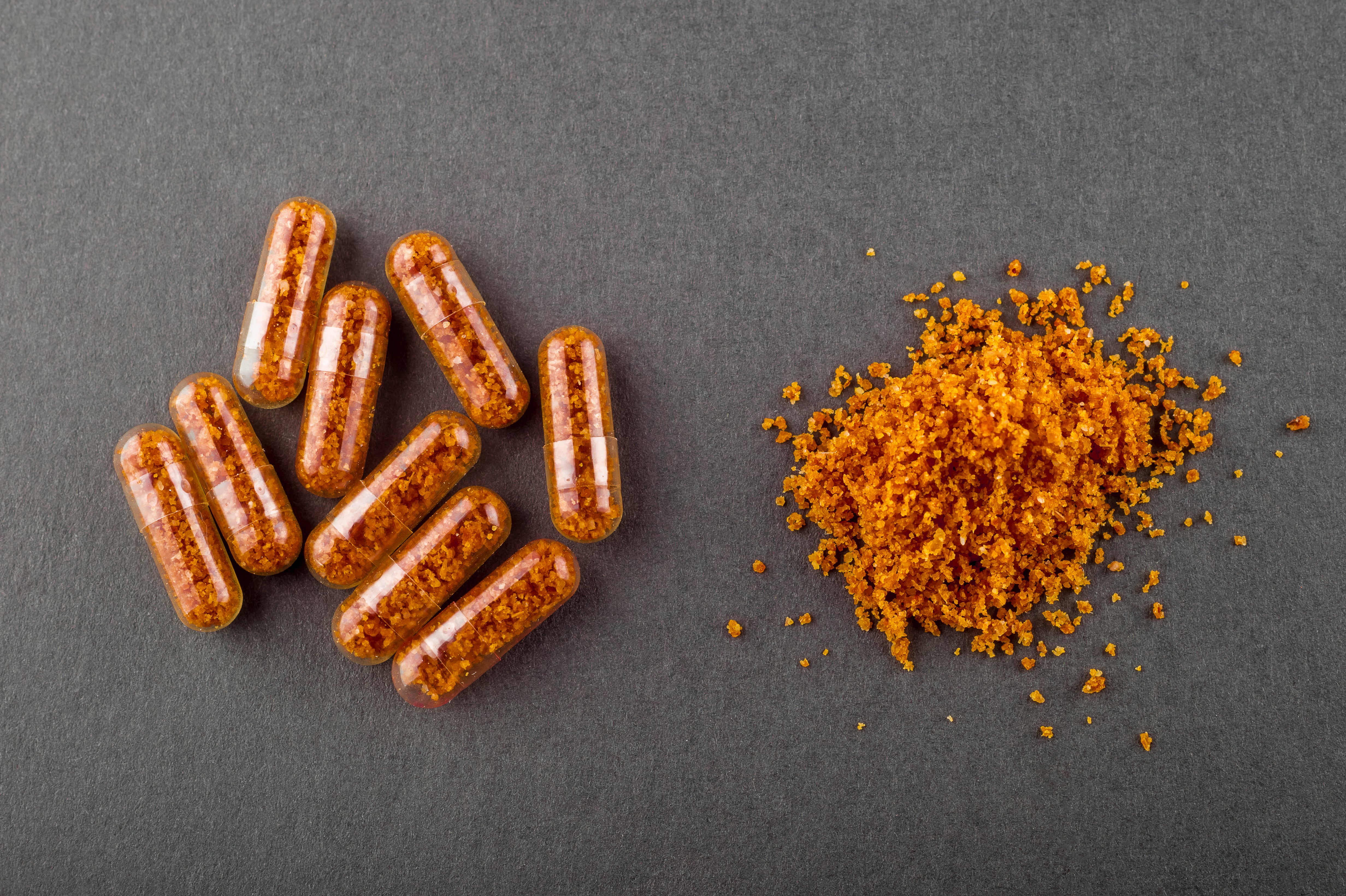
Putting someone else’s poop...
Why is it So Hard to Enjoy...

If you want to be healthy, ...
![how to solve travel constipation [Survey] How Long Should You Date Before You Defecate?](https://hellotushy.com/cdn/shop/articles/how-long-should-you-date-before-you-defecate-hero.jpg?v=1611359305)
Nope, those aren’t butterf...

Why Are You Straining to P...

Everybody has experienced ...
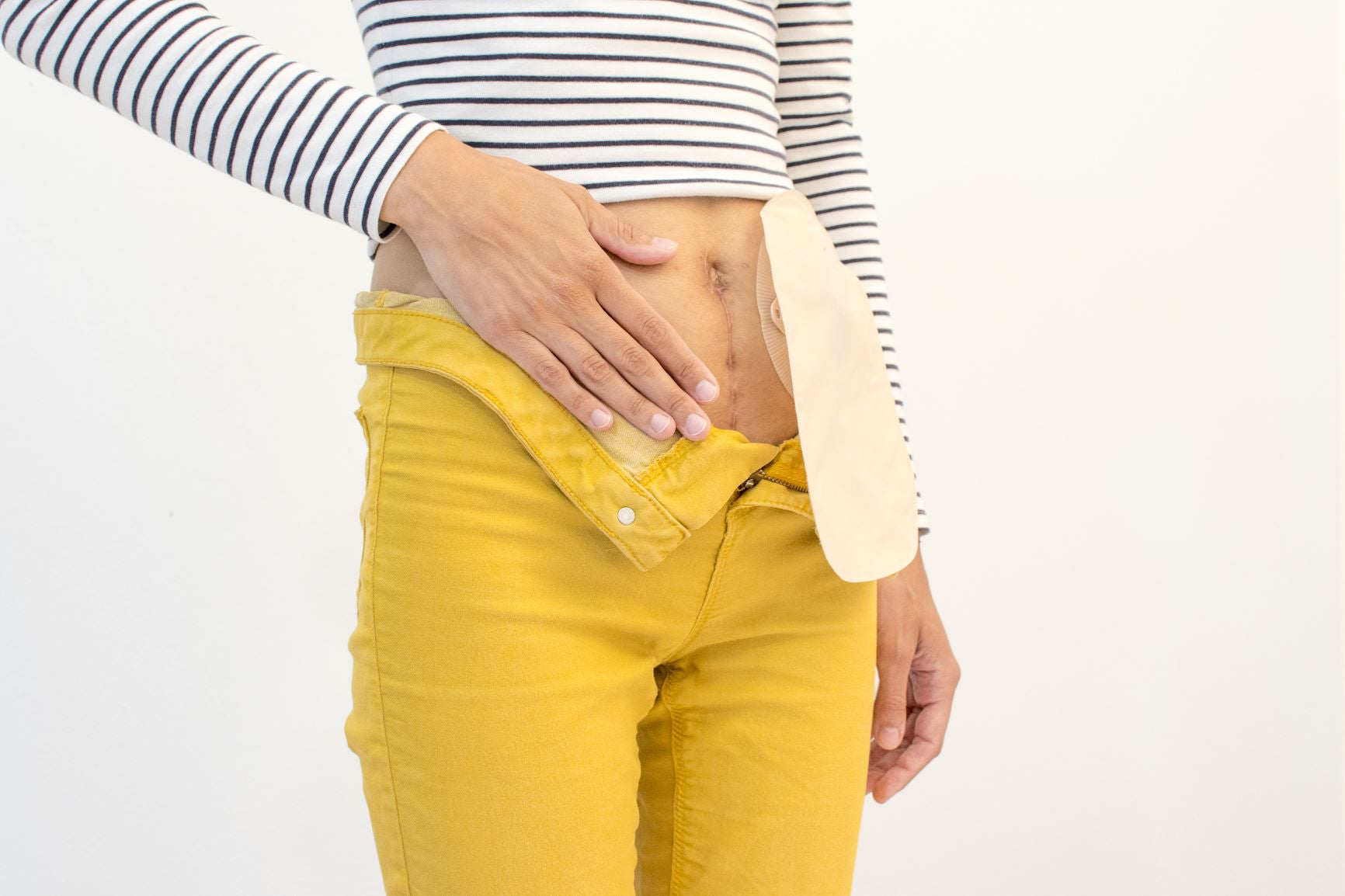
Everybody poops. Yes, yes. ...

Quick and Dirty Toilet Tip...
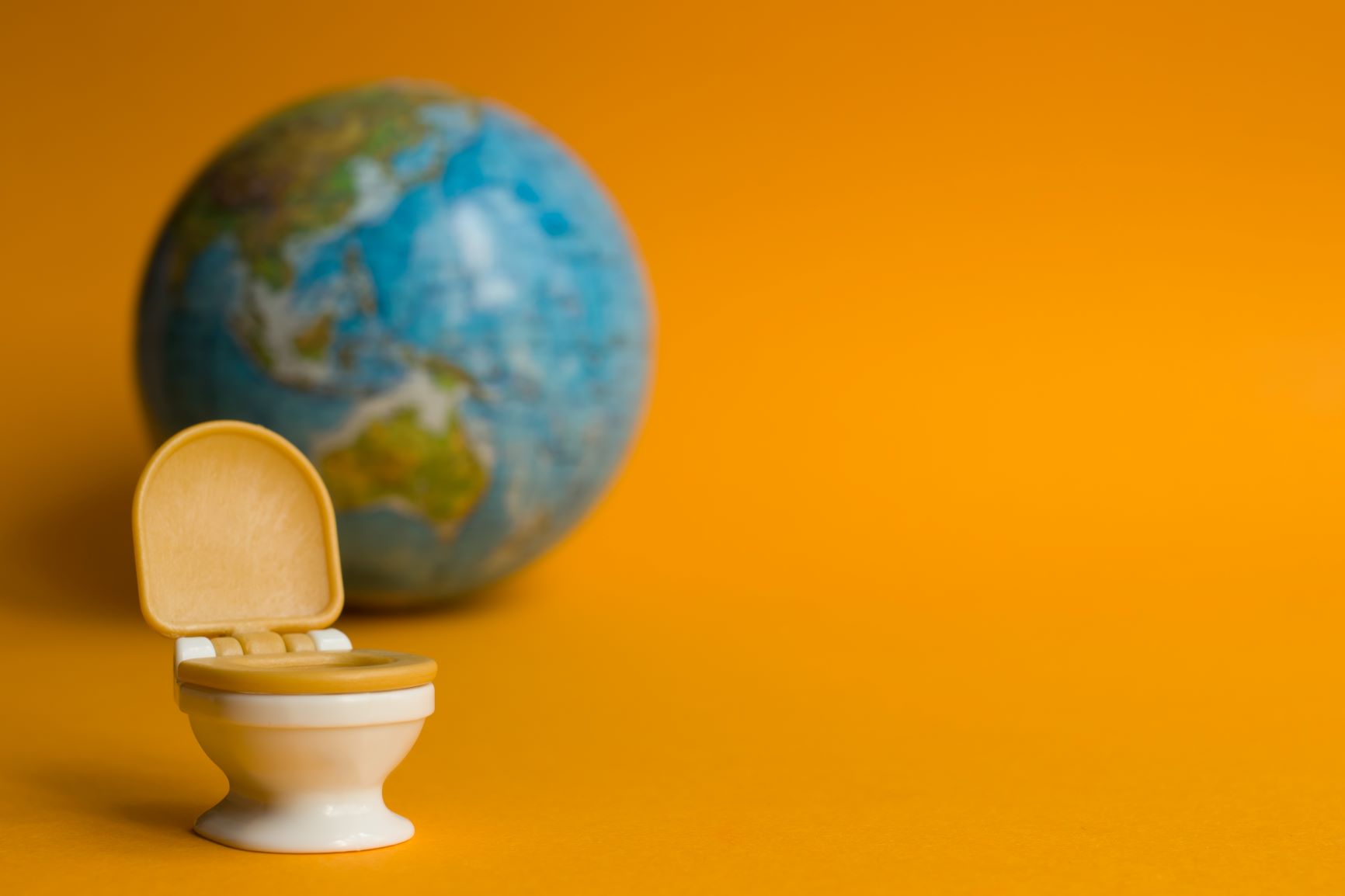
America may be a melting po...
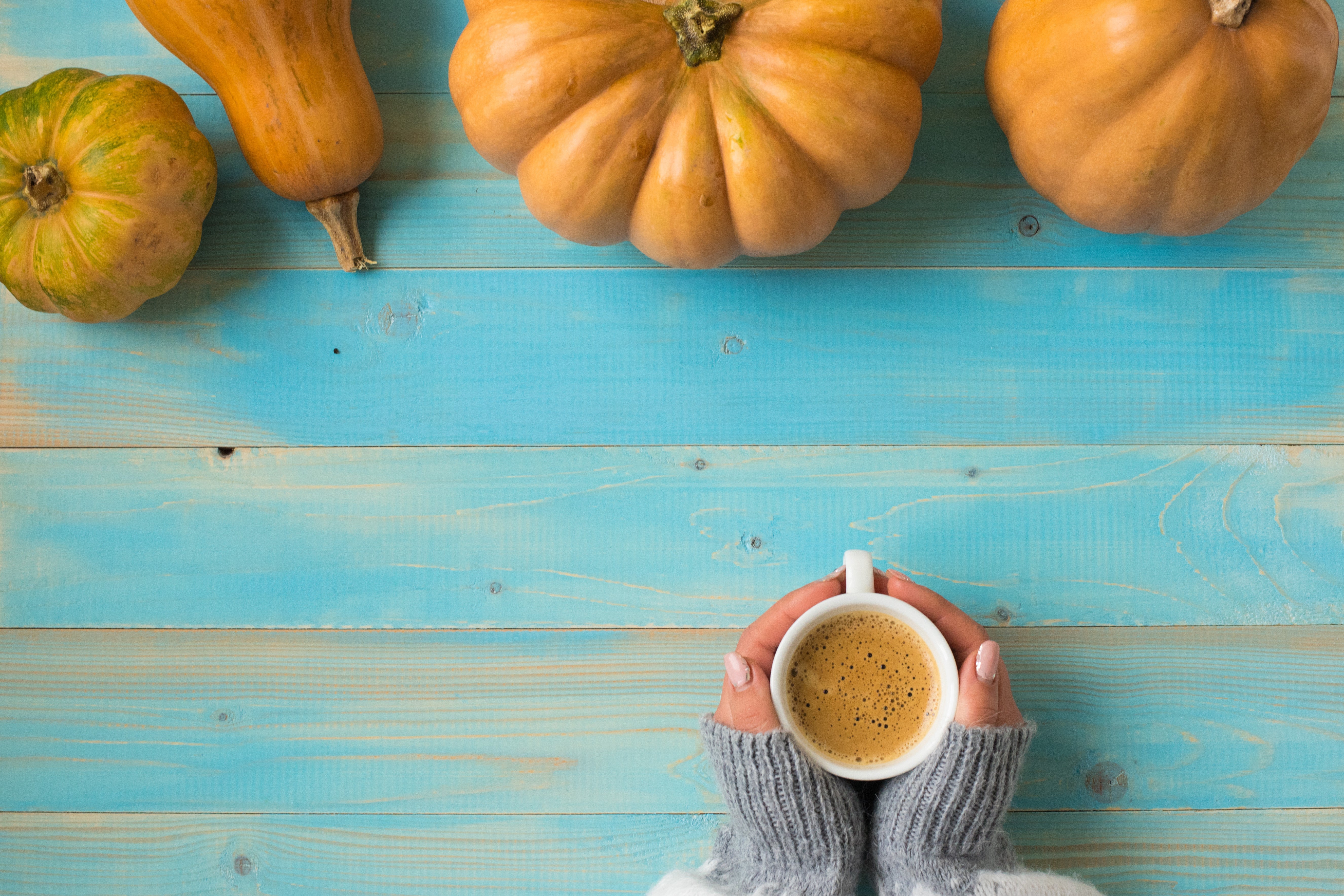
A crisp in the air. Dappled...

There are 2 types of people...
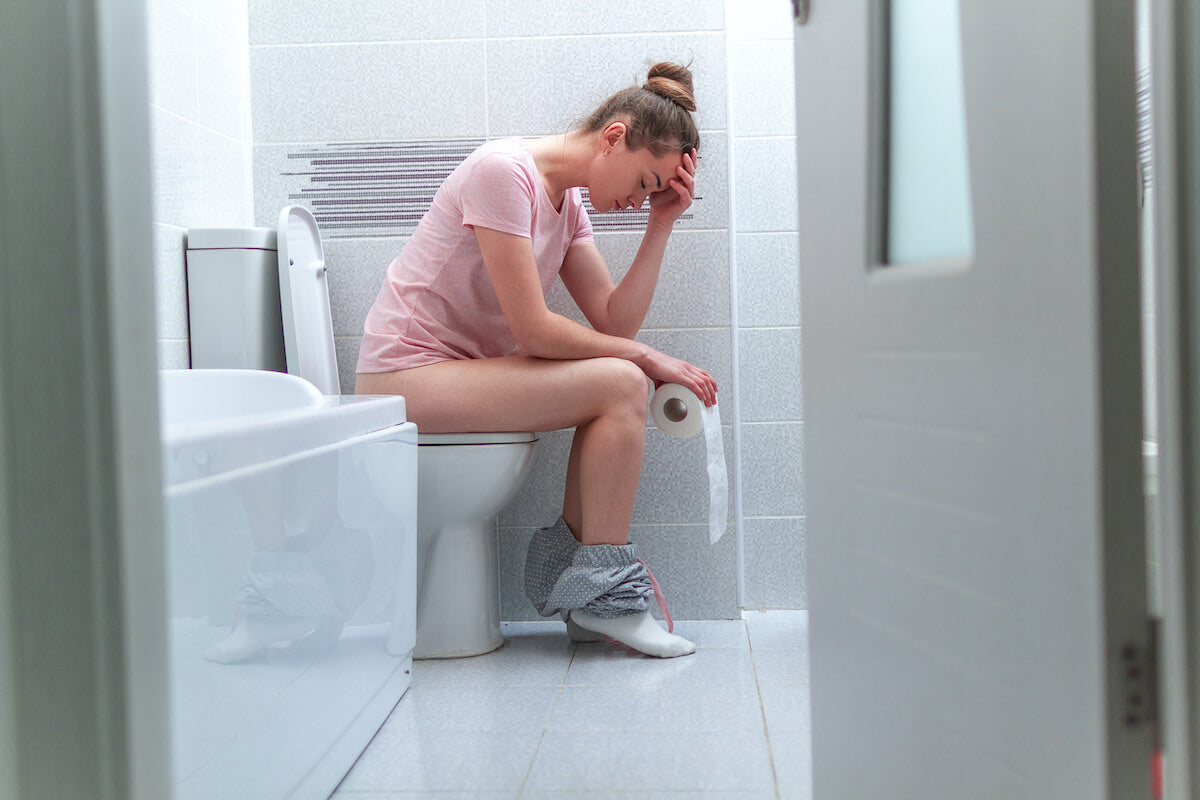
The countdown here stops a...
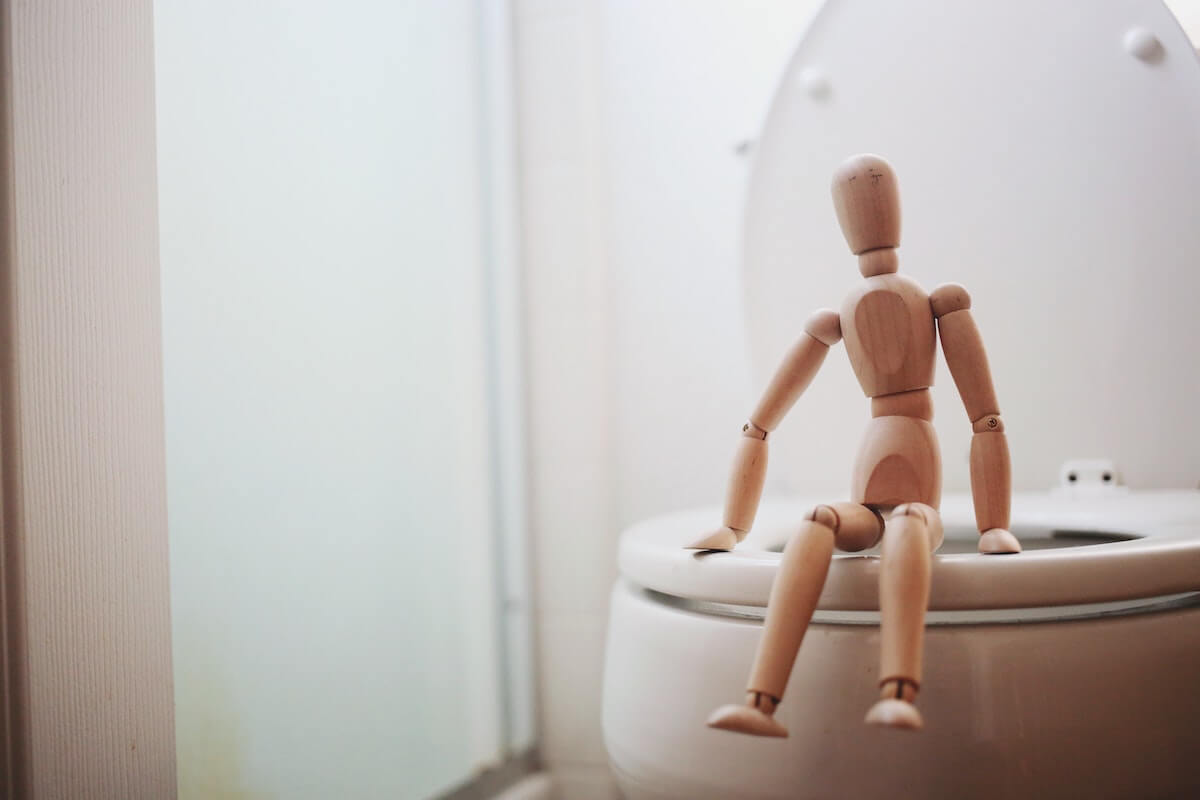
A rose by any other name wo...
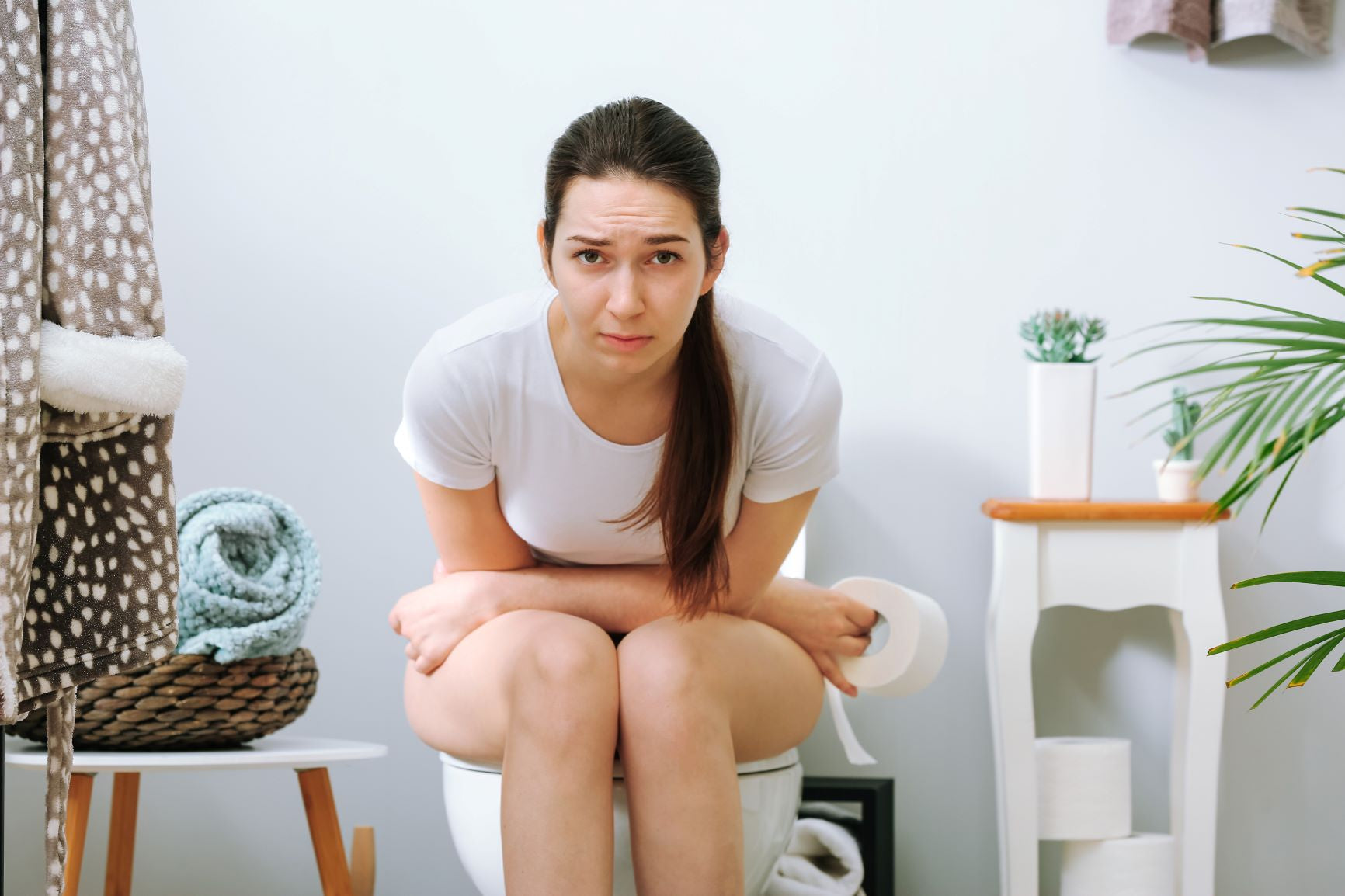
Shit happens. But then t...
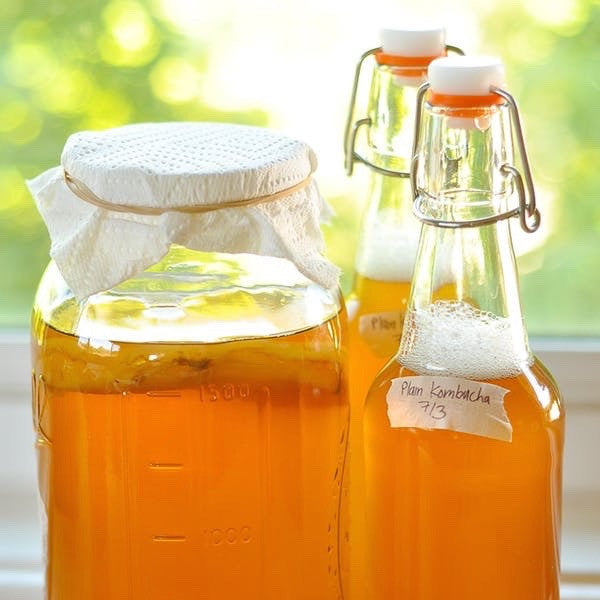
Kombucha, the fizzy, vinega...
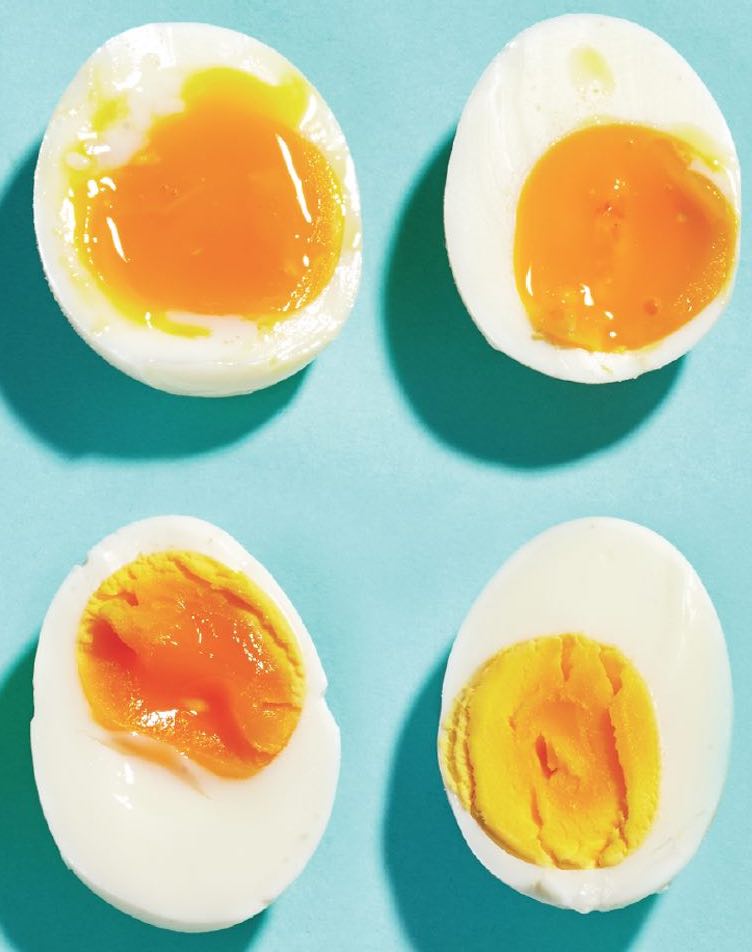
There truly is nothing like...
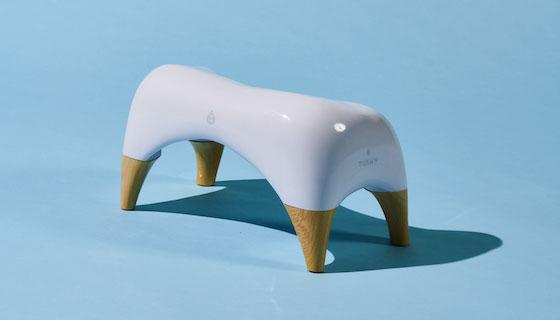
If there’s one thing we all...
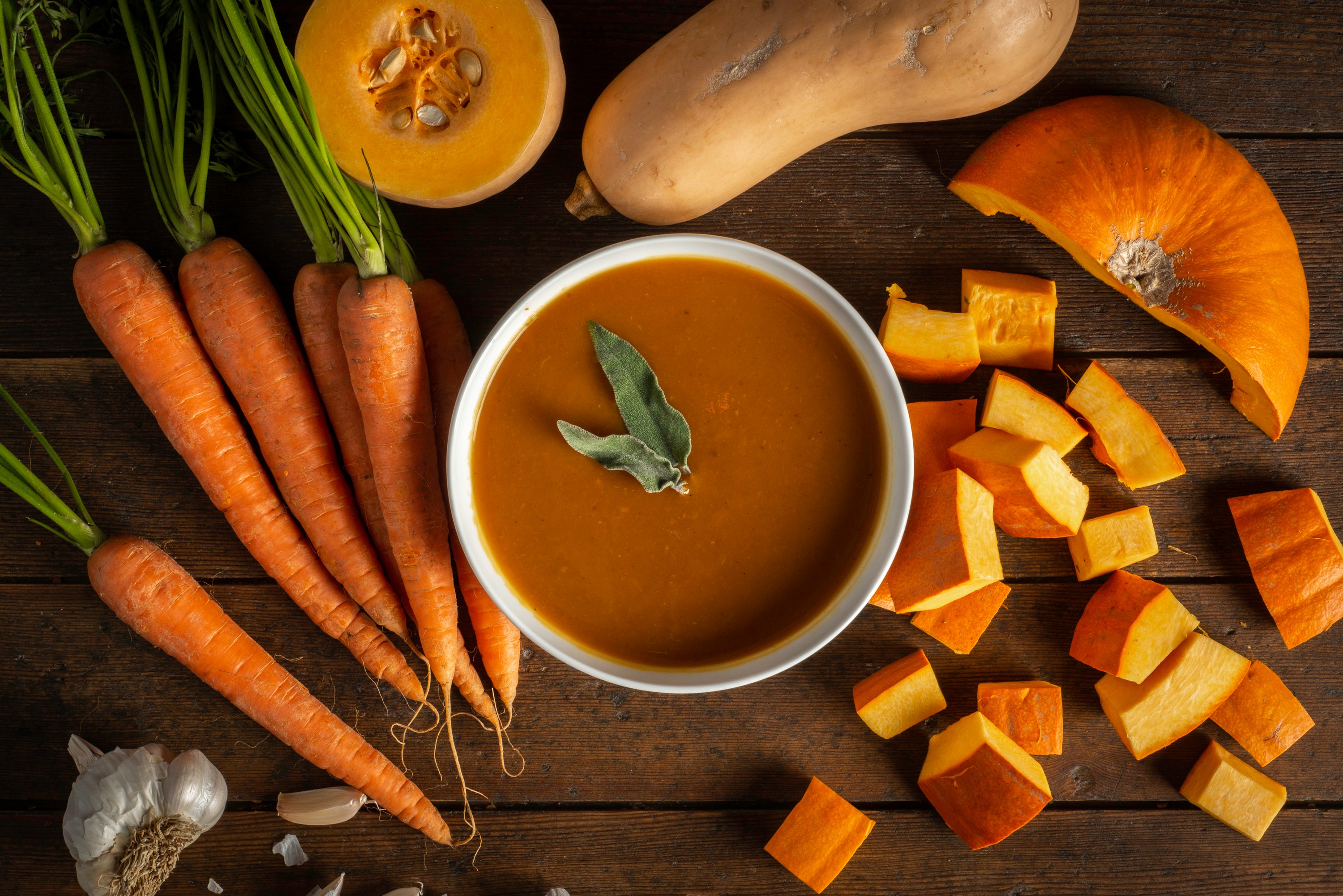
Our friends at Soupergirl a...

Dr. N.W. Walker used to say...

As a Gastroenterologist, D...
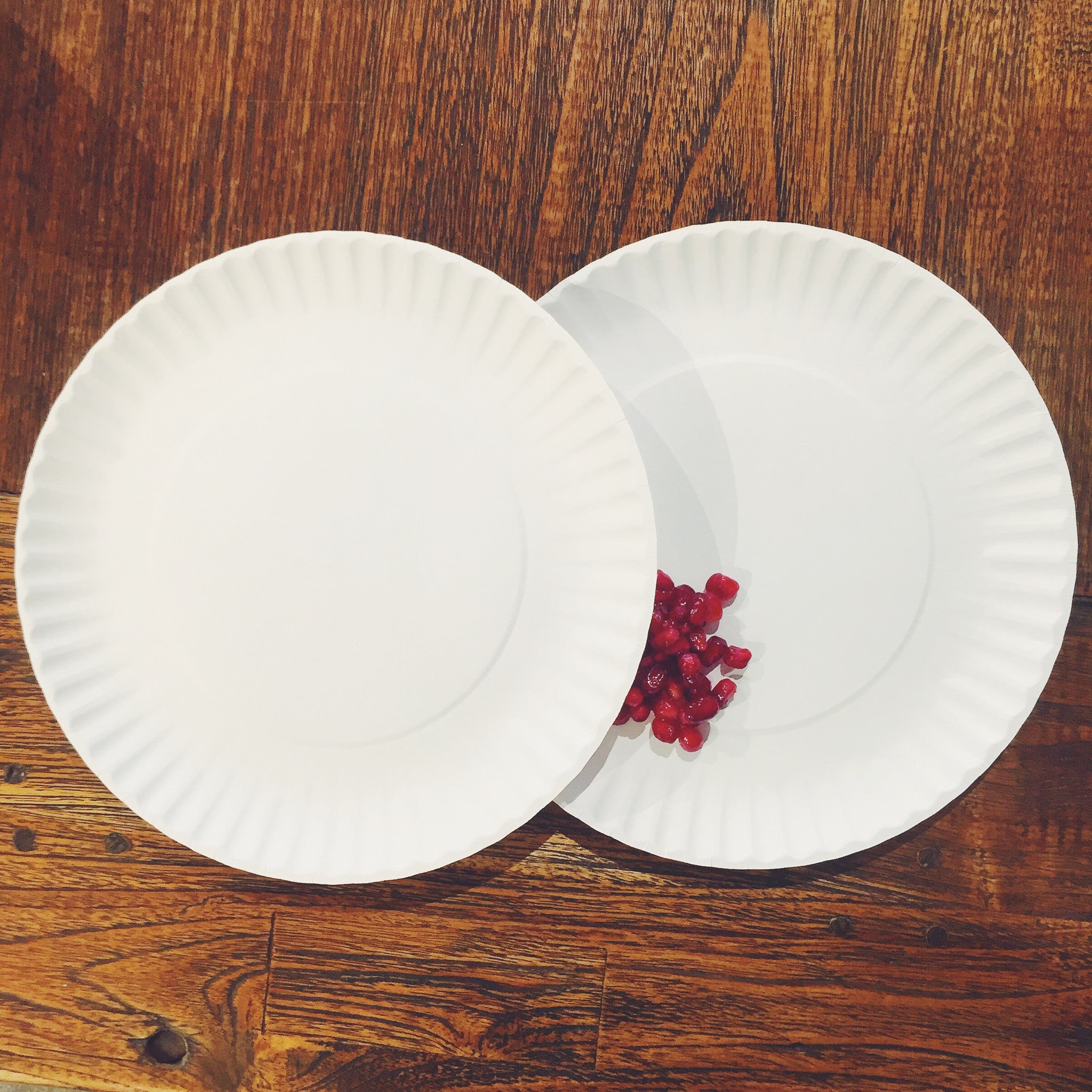
When people say “butt hurt,...

- BENEFITS OF A BIDET
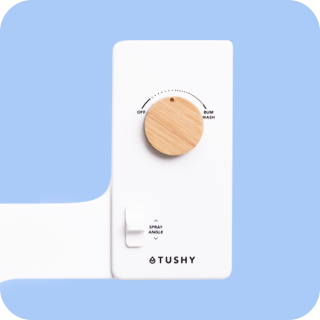
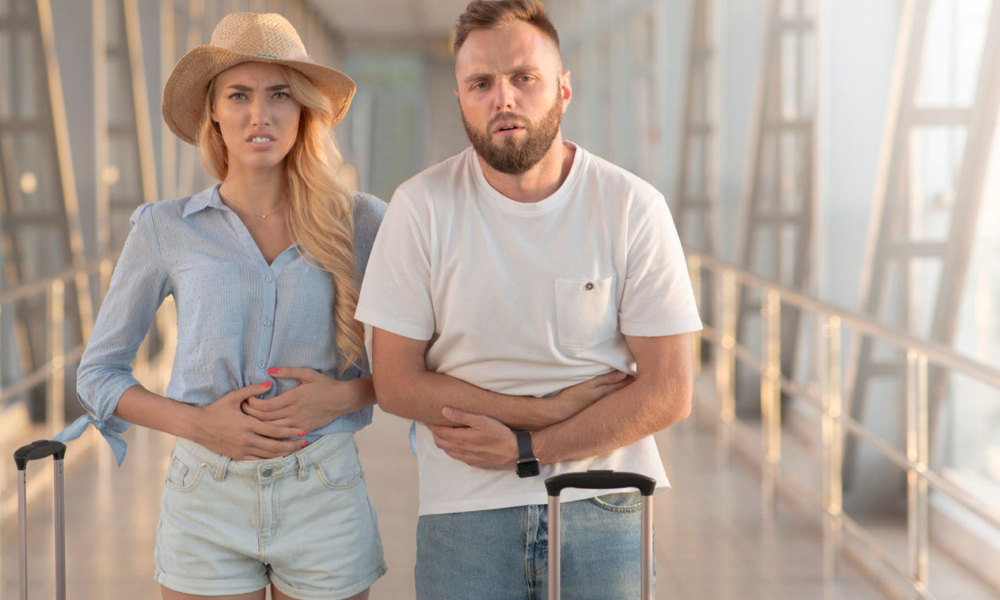
When Travel Stops You Up
If you’ve noticed that you become more irregular—or even worse, don’t experience a bowel movement at all—while traveling, you’re not the only one. In fact, this is a pretty common occurrence. If you were to ask, “what causes constipation?”, travel is one reason that causes this digestive issue. Read on to learn more about what causes travel constipation, what you can do to avoid or prevent it, and how to treat it if you’re already mid-vacation and suffering.
What Causes Constipation, Generally?
What causes the constipation you may experience several times a year, and what causes travel constipation may be different in nature, or they may not be, depending on your pre-travel health and habits. In order for the colon to push the waste your body has created through the colon and rectum, the stools must be soft. If they are not and remain in the colon too long, they can become hard, dry, and tough to pass. The two things your body needs most to be “regular” are adequate water intake and adequate fiber intake. Quite often, if you’re experiencing bouts of constipation that are not due to traveling, it can be traced back to one of these two things. Constipation can also be caused by:
- A sedentary lifestyle (little to no exercise)
- Medications, such as antacids and opioids
- Putting off having a bowel movement
Constipation that isn’t easily relieved with over-the-counter treatments or that doesn’t go away on its own may indicate an underlying medical problem, such as intestinal obstruction, irritable bowel syndrome ( IBS ), diabetes, or Parkinson’s disease. If this occurs, you should consult your health provider immediately.
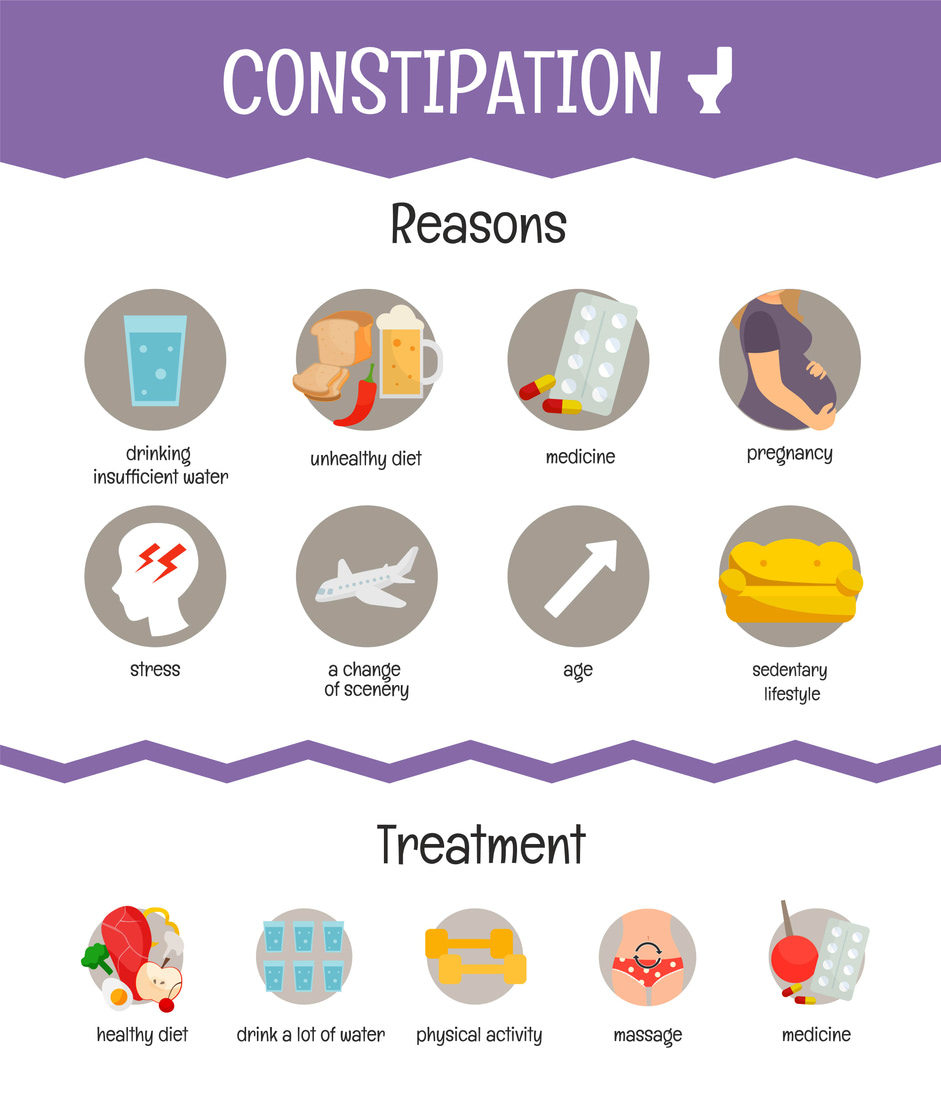
Why Does Travel-related Constipation Occur?
Travel-related constipation occurs primarily because your body’s routine is thrown off. Depending on how long you’re traveling or on your mode of travel, you may be dehydrated or eating junk food on the go, which can wreak havoc on your stomach. Also, the way cabins are pressurized in airplanes (if you are flying) can make you bloated and constipated. Just like an overall sedentary lifestyle contributes to regular bouts of constipation, it contributes to travelers’ constipation as well. Whether you’re flying, are traveling by car, or by train or bus, chances are you’re not moving much during traveling. In fact, you may even be holding it in (because who wants to stop in the middle of a road trip or go on an airplane)? However, both of these can contribute to travelers’ constipation. Other things that can contribute to travel constipation include:
- Trying new and different cuisines
- Being on a different schedule
- Anxiety and stress
- Sleep disruptions
While it can sometimes be hard to control insomnia and stress levels, especially while on vacation if you’re able to get things like this under control, you may be able to relieve some of your constipation symptoms.
What Are Constipation Symptoms?
Everyone’s regularity is a bit different, and some patients have a bowel movement every three days, which would be regarded as regular, while others have several a day, and this would also be considered regular. However, if you go more than three days without a bowel movement, this is usually considered constipation.
If you’re only traveling for a short time, you may not notice constipation symptoms set in until near the end of your journey, but it’s still important to treat them to try to raise your comfort level. Constipation symptoms include:
- Passing hard, dry stools
- Less than three bowel movements per week
- Pain or straining during a bowel movement
- Feeling full, even after having a bowel movement
If you experience more serious symptoms, such as blood in the stool, or pain in your side, let your doctor know immediately.
How to Prevent Constipation
To prevent regular, everyday constipation, you should drink plenty of water, eat a diet that is rich with fiber-filled foods , exercise often, and take a probiotic. However, to prevent constipation when traveling, there are some more things to consider. When people are traveling, they tend to overdo it on caffeine or alcohol, or both. However, these are both dehydrating beverages and can lead to constipation, so be mindful of your consumption of both. Also, trying to steer clear of junk food while traveling is a must.
No matter which method of travel you choose, get up every so often to move around if only to stretch your legs. If you’re traveling to a completely different time zone, try to prepare your body for it slowly so it’s not taken aback by the shock in routine. Lastly, try to keep your stress levels low if possible before and during travel.
How to Relieve Constipation
If you’re already on the road and are looking for constipation relief, there are a few options. The most rudimentary of home remedies would be getting up, getting your body moving, and ensuring that you’re fully hydrated, eliminating caffeine and alcohol from your diet while traveling.
However, if you’re already in pain, this just isn’t feasible for many. A stool softener may be helpful, but if you are already straining, this also may not give you the results you need in the time frame you are looking for. Suppose you’re on the road and don’t have access to your physician, in lieu of going to an urgent care for advice. In that case, you’re probably going to have your choice of two types of over-the-counter laxatives: Osmotic and stimulant laxatives. It would be ideal to try osmotic laxatives first, as they have fewer side effects. Although they take slightly longer to work, the end result will not be as jolting when they do get your bowels moving again. Osmotics are brand names such as Metamucil, Milk of Magnesia, and Miralax. These work by helping your colon produce more fluid, which, often combined with stool softeners, enable you to gently push the stool without straining. These usually work within 12 to 24 hours of first taking them.
Stimulant laxatives work differently in that they cause the intestines to have muscle contractions. These work more rapidly than osmotics (sometimes within 4 to 6 hours), however, it’s best to ensure you are close by a restroom when the laxatives begin to work, as the onset can be sudden. Brand-name stimulant laxatives include Ex-Lax and Dulcolax. These should not be used too often because they increase the risk of colon cancer.
You can also use an enema or glycerin suppository to stimulate a bowel movement as a last resort, but over-the-counter laxatives typically work for most cases. If OTC laxatives do not work, you should consult a physician. The best thing to do when it comes to travel constipation is preventative care—be aware of your body and try to avoid travel constipation in the first place before you have to treat it with laxatives.
Gastrointestinal Care in Needham, MA
To learn more about constipation and travel constipation or if you need to be seen by a physician, contact us at Needham Gastro today. We offer comprehensive gastrointestinal care to our patients, treating a wide variety of GI disorders and issues.
Book a Screening Colonoscopy
Book an appointment now with one of our board-certified gastroenterologists. We are committed to providing you with the most comprehensive quality of gastroenterology care.
Start typing and press enter to search
15 Ways to Make Yourself Poop When You Need Fast Relief, According to Doctors
From upping your fluid intake to loading up on fiber, try these home remedies to help ease constipation quickly.

We may earn commission from links on this page, but we only recommend products we back. Why Trust Us?
How to make yourself poop fast
How long can it take to see results, what is constipation, what causes constipation, constipation prevention, when to see your doctor about constipation.
If you’re experiencing constipation, you’re likely wondering how to make yourself poop—fast. The inability to relieve yourself, often coupled with stomach pain , gas, and bloating , is one of the most uncomfortable common health concerns. And while most of us would rather not talk about our pooping habits , constipation is an issue that can be addressed and treated in several ways.
It’s important to remember that there is no standard frequency for healthy bowel movements . Some people poop every day, while others go every couple of days. Both are normal and as long as you feel good, it’s not much to worry about.
However, you’re probably well aware of how often you typically have a bowel movement, so when you’re suddenly struggling to go, it can feel like a big deal. So it’s understandable to wonder how to make yourself poop immediately.
Ashkan Farhadi, M.D. , a gastroenterologist at MemorialCare Orange Coast Medical Center and director of MemorialCare Medical Group’s Digestive Disease Center in Fountain Valley, CA, recommends trying the lifestyle tweaks listed below to get relief. You’ll want to do them sooner rather than later since constipation can get harder to treat the longer it goes on.
Meet the experts: Ashkan Farhadi, M.D. , a gastroenterologist at MemorialCare Orange Coast Medical Center; Rudolph Bedford, M.D. , a gastroenterologist at Providence Saint John’s Health Center in Santa Monica, CA; Ellen Stein, M.D. a gastroenterologist; Karen WeiRu Lin, M.D. , assistant dean for global health and a professor of family medicine and community health at the Rutgers Robert Wood Johnson Medical School in New Jersey
Here’s what could be behind your blockage—and how to make yourself poop again.
How to make yourself poop naturally
The following home remedies can help get things moving again, according to doctors.
1. Up your fluid intake.
“Water is really important for relieving constipation,” says Rudolph Bedford, M.D. , a gastroenterologist at Providence Saint John’s Health Center in Santa Monica, CA. If you’re just not a “water person,” try to get enough through other liquids, like brothy soups or water-rich produce like watermelon, says Karen WeiRu Lin, M.D. , assistant dean for global health and a professor of family medicine and community health at the Rutgers Robert Wood Johnson Medical School in NJ. But pass on sugary drinks, as they could make the problem worse.
The actual amount of liquids you need varies from person to person but the U.S. National Academies of Sciences, Engineering, and Medicine recommends that women have at least 11.5 cups of fluids (including fluids from water, other liquids, and food) a day, and that men strive for 15.5 cups.
2. Eat more fiber-rich foods.
Dietary fiber is a type of carbohydrate that slows digestion by adding bulk to your diet, which helps you feel fuller faster—and it helps get things to progress down there. “It keeps stools soft and moving through,” Dr. Bedford confirms.
Pro-tip, per Dr. Lin: Make sure you’re drinking plenty of water with your fiber for maximum benefits. Good sources of fiber you can get from foods include whole grains, nuts and seeds, and plenty of fruits and vegetables.
Some good sources of fiber include:
- Raspberries
3. Consider a fiber supplement.
If you need a strong hit of fiber ASAP, Dr. Lin suggests taking a fiber supplement. Ideally, go for one that’s dissolved into water, like psyllium (a.k.a. Metamucil ). The water part is essential, Dr. Bedford says: Dietary fiber absorbs water, making your poop bulkier and therefore easier to move along.
4. Enjoy a cup of coffee.
The caffeine in coffee “increases the contractions of muscles within your gut to push things through,” Dr. Bedford says. It also contains liquid, which can be beneficial. Too much coffee can dehydrate you, though, so Dr. Bedford recommends drinking water along with your coffee for maximum effect. Not a coffee drinker? Strong tea can have a similar effect.
5. Get moving.
Exercise is important for overall health, but it can also stimulate blood in the muscles in your gut, causing them to contract more and push poop along, Dr. Bedford says. “Movement and exercise is always great for combatting constipation,” he says. If you’ve been on the sedentary side lately, try going for a fast walk or do a full-on workout if you’re able.
6. Have some healthy fats.
Foods that contain healthy, unsaturated fats like avocado, nut butter, olives, and oily fish can help speed things up in your GI tract. “These fats lubricate the lining of the gut, allowing stool to move through a lot easier,” Dr. Bedford says. One cup of avocado also contains 10 g of dietary fiber, making it a good option to try.
7. Sip on warm water.
Water in general is crucial for relieving constipation, but warm water can also be a good tactic. It “stimulates the inner lining of the gut,” Dr. Lin says. That can cause contractions down there to push your stool along.
8. Load up on probiotics.
Probiotics (the good bugs in your gut) are live microorganisms that play a key role in how your body digests food . Just know this: They won’t work immediately. “It is not like Tylenol for fever—it does not work in 20 minutes,” Dr. Lin says. “It takes time for good bacteria to digest food piece by piece, and might take more than a day.” Still, Dr. Bedford says, “It’s going to change the bacterial imbalance within your gut. That may also allow for things to move through your system a lot easier.” Consider loading up on probiotic-rich fermented foods , like Greek yogurt or fresh sauerkraut, or pop a quality probiotic supplement to support your overall gut health.
9. Try using heat therapy.
Dr. Lin has two recommendations when it comes to heat therapy. First, try drinking a cup of warm water, wait 30 minutes, and then gently massage your lower abdomen to try to stimulate the area. If that doesn’t seem to help, take a hot shower, with the water concentrated on your lower back.
10. Try a perineum massage
The perineum is the area between the anus and the vagina or scrotum, and a study in the Journal of General Internal Medicine found that pressure points in that area respond well to massage, leading to constipation relief.
11. Supplement with magnesium.
Taking magnesium supplements has many potential benefits, based on the type you choose. Magnesium citrate “is one of the most bioavailable forms of magnesium,” Jim White, R.D.N., A.C.S.M. Ex-P , owner of Jim White Fitness and Nutrition Studios previously told Prevention . “It also has a natural laxative effect and is often used in medications to treat constipation.” Just be sure to check with your doctor (and cross-reference with any medications you may already be taking) before trying it out for yourself.
1. Consider a stool softener.
Stool softeners can come in capsule, tablet, liquid, or syrup form, and they work by softening your poop to make it easier to pass through. While they can do the trick, Dr. Bedford recommends taking more natural approaches first, as some softeners can cause uncomfortable side effects. “The preference before taking a stool softener is drinking liquids and taking in more fibers,” he says. If you do end up trying this method, keep in mind that it only takes one to three days of use for the softener to kick in. Do not take them for longer than a week unless you get the OK from a doctor, per the U.S. National Library of Medicine.
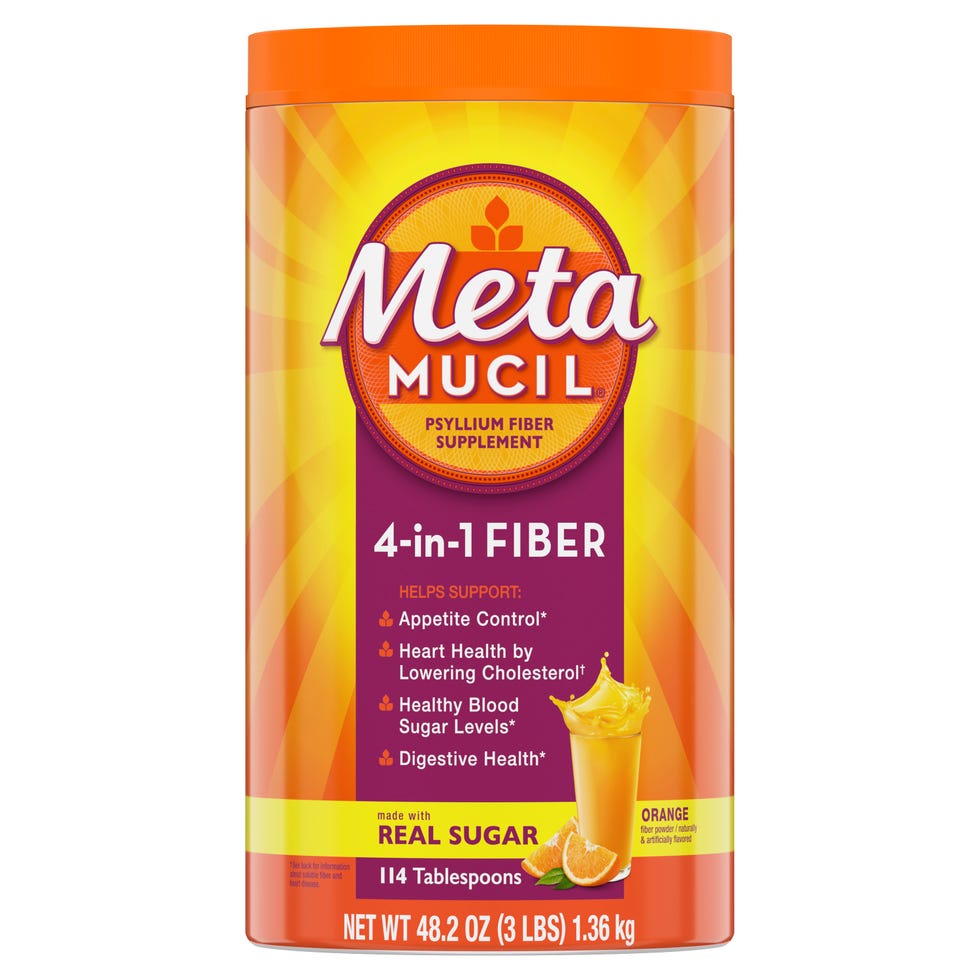

Metamucil Psyllium Powder Fiber Supplement
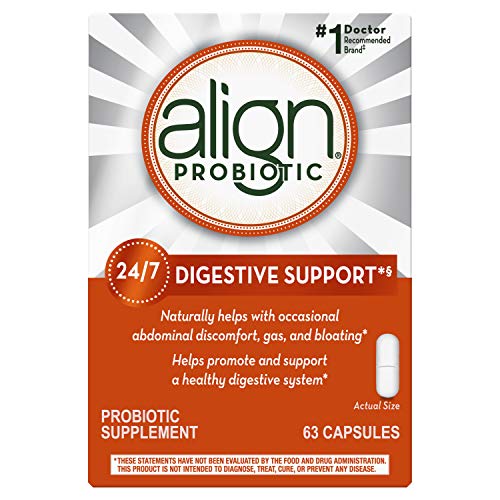
Align 24/7 Digestive Support Probiotic Supplement
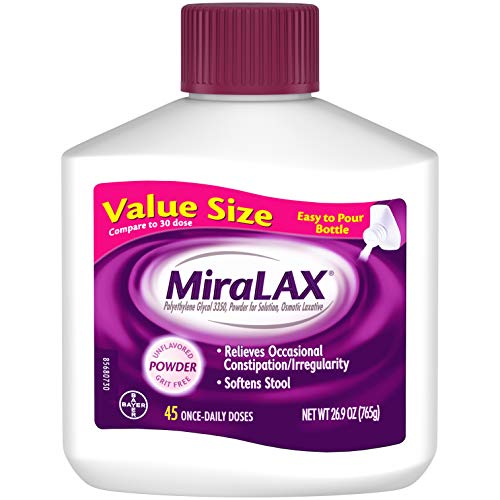
MiraLAX Laxative Powder for Constipation Relief
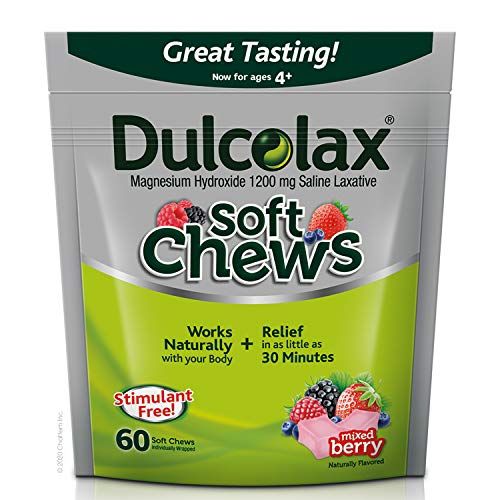
Dulcolax Soft Chews Saline Laxative, Mixed Berry
2. Try a laxative.
An osmotic (better known as a laxative) is a type of medication that draws water into your bowel to unblock you. Polyethylene glycol ( MiraLAX ) and bisacodyl ( Dulcolax ) are popular options. Again, while taking an osmotic can help get things moving, Dr. Bedford recommends focusing on your water and fiber intake before trying this treatment.
3. Use a suppository.
Like laxatives, suppositories are a “last resort” for promoting a bowel movement, Dr. Farhadi says. These rounded objects, often filled with medication, are made to be placed into the anal canal and rectal area, explains gastroenterologist Ellen Stein, M.D., associate professor of medicine at the Rutgers Robert Wood Johnson Medical School. Dr. Stein adds that the rectal area has an “extensive blood supply,” helping the body absorb the medication in an anal suppository very quickly. You can expect to get relief in as soon as 15 to 20 minutes, she says.
Try choosing a glycerin suppository, as Dr. Stein notes, as these are smaller and easier to insert, making them a “relatively gentle” option compared to stimulant suppositories which contain medication that produces “more vigorous” results.
4. Consider an enema.
An enema, in case you’re not familiar, is an injection of fluid into your rectum to try to clean the area to stimulate pooping—and there are a lot of different types. “Enemas of tap water generally are well tolerated and can be used intermittently by patients with severe symptoms of constipation that don’t respond to other lifestyle changes, dietary changes, or medications,” Dr. Stein says. Mineral oil enemas can also be helpful, she says.
But Dr. Stein cautions against using enemas of coffee, noting that they’re “dangerous.” And, like suppositories, enemas shouldn’t be considered your first step if you’re struggling to poop. “Repetitive placement of the enema catheters can sometimes lead to ulceration or erosions in the rectal wall if they are not gently and properly performed,” Dr. Stein says. “Shooting the enema contents at only one wall of the rectum can similarly cause irritation or damage of the wall of the rectum.”
It depends. Things like dietary changes, drinking coffee, and having warm water can take a day or so to kick in. However, using a laxative “should work in a few hours,” Dr. Farhadi says. Similarly, an enema or suppository should give you results within minutes, per Dr. Stein.
There can be plenty of reasons why you can’t poop, ranging from not having enough fiber or water in your diet to taking a new medication, says Dr. Lin
You venture into constipation territory when you have less than three bowel movements a week, according to the National Institute of Diabetes and Digestive and Kidney Diseases (NIDDK). Issues like having poops that are hard, dry, or lumpy, BMs that are hard or painful to pass, or a feeling that you didn’t get everything out despite going to the bathroom also classify as constipation, the NIDDK says.
While chronic constipation can be a sign of an underlying health condition, like irritable bowel syndrome, that’s probably not what’s going on if you only struggle to poop occasionally.
There’s a laundry list of potential reasons why you might get constipated, and it’s possible to have trouble pooping for more than a few reasons. “Bowel movements are a dynamic process,” says Dr. Farhadi. “They depend on a lot of factors, including your level of activity, diet, stress, emotional factors, use of medication—you name it. Everything that can affect the body can affect your bowel movements.”
The NIDDK lists the following as possible constipation causes:
- Pelvic floor disorders
- Gastrointestinal disorders like irritable bowel syndrome (IBS)
- Certain medicines and dietary supplements, including antacids, calcium, diuretics, iron, and narcotics
- Lifestyle changes like pregnancy, older age, travel, and dietary changes
- Not eating enough fiber
- Dehydration
- Not exercising enough
- Having Celiac disease
- Disorders or injuries of the brain and spine
- Conditions that impact your metabolism, like types of diabetes
- Hormonal conditions, like hypothyroidism
- Intestinal obstructions
- Anatomic problems with your digestive tract
How often should you poop?
Again, everyone has their range of normal and the odds are high that you have some idea of what’s standard—and not—for you. “People have a wide range of frequency,” Dr. Farhadi says. “‘Normal’ could be anywhere from three times a day to three times a week.”
Once you’ve dealt with constipation, it’s understandable to want to do what you can to lower the risk you’ll experience it again. Dr. Stein says taking the following steps may help:
- Move more. “Movement is key to reduce constipation—the walking, exercising, stretching, and climbing that we do helps the guts to move along the way they were meant to,” she says.
- Eat a healthy diet . That, she says, means focusing on foods with fiber, along with fruit and vegetables. Additionally, adding more grains, starches, and lipid-rich foods has been found to decrease constipation.
- Drink lots of water . Dr. Stein says that “plenty of hydration” will help lower the risk of constipation. The U.S. National Academies of Sciences, Engineering, and Medicine recommends that men aim to take in about 15.5 cups of fluids a day, and that women strive for about 11.5 cups of fluids a day.
- Avoid junk food. Junk food can lead to harder poop, Dr. Stein says. For example, eating foods high in sugar and/or sodium has been linked to constipation
- Monitor your medications. “Medications can contribute quite a bit to constipation development,” Dr. Stein says, noting that opiates in particular are “prone to exacerbating constipation.” Her advice: “If you are getting started on a new medication and notice a change in stools, let your prescribing provider know and ask if there are things that you can do to adjust your dose or regimen to keep things going at the proper pace.”
If you’ve tried these home remedies to make yourself poop and you’re still struggling, or if you find that you’re regularly constipated, Dr. Bedford says it’s time to check in with your primary care physician. They can evaluate to see what might be behind your inability to poop—and give you guidance on how to solve the problem.
The NIDDK says that you’ll want to seek help ASAP, though, if you experience constipation along with these issues:
- Rectal bleeding
- Blood in your poop
- Constant abdominal pain
- Trouble passing gas
- Lower back pain
- You’re losing weight without trying
“If you’re getting to the point where you have to have a laxative or use extra measures in order to have a bowel movement, and you can’t pinpoint an obvious reason, that needs to be investigated,” Dr. Farhadi says.
Dietary supplements are products intended to supplement the diet. They are not medicines and are not intended to treat, diagnose, mitigate, prevent, or cure diseases. Be cautious about taking dietary supplements if you are pregnant or nursing and be sure to consult your doctor before taking new supplements (or providing them to a family member) in any situation, as they can interfere with medication.
Victoria Beckham’s Diet: Is It Healthy?

This Best-Selling Amazon Neck Fan Is 40% Off

I Lost an Inch in Height for This Medical Reason

How to Sleep With Low Back Pain

Kelly Hyland Reveals Breast Cancer Diagnosis

Judi Dench May Be Done Acting Amid Vision Loss

Isabella Strahan Honors Birthday in Health Update

A Guide for Living With COPD
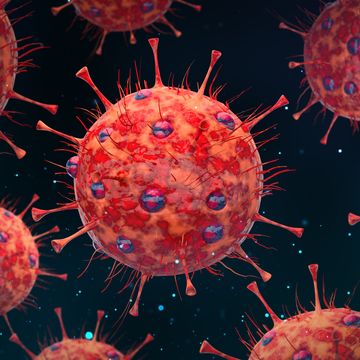
What Are the FLiRT COVID-19 Variants?

10 Doctor-Recommended Menopause Supplements to Try

11 Reasons Why Your Tongue Is Super Swollen
- Patient Care & Health Information
- Diseases & Conditions
- Constipation
In addition to giving you a general physical exam, your health care professional will likely do the following during your appointment:
- Gently press on your abdomen to check for pain, tenderness or irregular lumps.
- Look at the tissue of the anus and the surrounding skin.
- Use a gloved finger to check the condition of the rectum and the muscles of the anus.
You'll also be asked questions about your medical history, diet, exercise habits and stools. For some people, the information from this appointment may be enough for a diagnosis and treatment plan.
For other people, one or more additional tests may be needed to help the health care team understand the nature or cause of constipation.
Laboratory tests
Your health care professional may send samples of your blood to a lab to test for diseases or conditions that can cause constipation.
Your health care professional may order a procedure called an endoscopy. A small tube with a camera is guided into the colon. This can reveal the condition of the colon or the presence of irregular tissues. Before this procedure, you may have a limited diet, use an enema or drink solutions that clean out your colon. There are generally two types of tests:
- A colonoscopy is an exam of the rectum and entire colon.
- A sigmoidoscopy is an exam of the rectum and the lower part of the colon, also called the sigmoid or descending colon.
Imaging tests
Depending on your symptoms, your health care professional may order X-ray imaging. An X-ray can show where stool is present in the colon and if the colon is blocked. Imaging tests, such as a CT scan or MRI , may be needed to diagnose conditions that may be causing constipation.
Tests of stool movement
Your health care professional may order a test that tracks the movement of stool through the colon. This is called a colorectal transit study. Such studies include:
- Radiopaque marker study. This X-ray procedure shows how far tiny pellets from a pill have moved through the colon over a period of time.
- Scintigraphy. This study involves eating a meal with tiny radioactive substances that are tracked with special technology as they move through the colon.
Tests of the rectum and anus
Other tests may be used to measure how well the rectum and anus work and how well a person can pass stool.
- Anorectal manometry. A narrow, flexible tube is inserted into the anus and rectum. After a small balloonlike device is inflated, it is pulled back out the anus. The procedure measures the coordination of the muscles used to pass stool.
- Balloon expulsion test. This test measures the amount of time it takes to push out a small, water-filled balloon in the rectum. This provides information on how well muscles work or are controlled.
- Defecography. This test is designed to mimic passing stool. A thick substance that can be tracked with imaging technology is placed in the rectum. X-ray or MRI images can reveal information about how well the rectum and anus work when the substance is passed like stool.
- Care at Mayo Clinic
Our caring team of Mayo Clinic experts can help you with your constipation-related health concerns Start Here
More Information
Constipation care at Mayo Clinic
- Colonoscopy
- Flexible sigmoidoscopy
Treatment for constipation usually begins with diet and lifestyle changes meant to increase the speed at which stool moves through the colon. Also, your health care professional may change the medicines you take if they may be causing or worsening constipation. If those changes don't help, other treatments may be necessary.
Diet and lifestyle changes
Your doctor may recommend the following changes to relieve your constipation:
- Eat a high-fiber diet. Fiber adds bulk to stool and helps the stool hold fluids. These factors give stool the right shape and weight to move through the colon. Fiber-rich foods include fruits, vegetables, beans, and whole-grain bread, cereal and rice. Increase dietary fiber slowly to prevent bloating and gas. The Dietary Guidelines for Americans recommend 25 to 34 grams of fiber a day depending on recommended daily calories.
- Drink plenty of water. Drink water and beverages without caffeine. This keeps stools soft and prevents bloating and gas that can happen with increased dietary fiber.
- Exercise most days of the week. Regular physical activity helps improve the movement of stool through the colon. Try to exercise most days of the week. If you do not already exercise, talk with your health care professional about safe ways to start.
- Use good bowel habits. Don't avoid the urge to pass stool. Keep a schedule for passing stool. For example, try to pass stool 15 to 45 minutes after a meal because digestion helps move stool through the colon.
Prunes, also called dried plums, have long been used to treat or prevent constipation. Prunes are a good source of fiber, but they also have naturally present agents that draw fluids into the colon.
Laxatives are medicines that help move stool through the colon. Each laxative works somewhat differently. The following are available without prescriptions:
- Fiber supplements. Fiber supplements help stool retain fluids. The stool is then softer and easier to pass. Fiber supplements include psyllium (Metamucil, Konsyl, others), calcium polycarbophil (FiberCon, Equalactin, others) and methylcellulose (Citrucel).
- Osmotics. Osmotic laxatives help stool move through the colon by increasing the amount of fluids released into the intestine. Examples include oral magnesium hydroxide (Phillips' Milk of Magnesia, Dulcolax Liquid, others), magnesium citrate, lactulose (Generlac) and polyethylene glycol (Miralax).
- Stimulants. Stimulants cause the walls of the intestine to tighten, forcing the movement of stool. These include bisacodyl (Correctol, Dulcolax Laxative, others) and sennosides (Senokot, Ex-Lax, Perdiem).
- Lubricants. Lubricants such as mineral oil enable stool to move through the colon more easily.
- Stool softeners. Stool softeners such as docusate sodium (Colace) and docusate calcium allow more fluids to be drawn into the stool.
Enemas and suppositories
An enema is a fluid gently pumped into the rectum to help pass stool. An enema may be used when other treatments don't work. Your health care professional may use one of these if the rectum is blocked with stool. Some are also available without prescription. The fluid may be:
- Tap water with mild soap.
- Mineral oil.
A suppository is a small tube-shaped object placed in the rectum to deliver a medicine. The suppository melts at body temperature and releases the medicine. Suppositories for constipation may have one of the following:
- Osmotic laxative.
- Stimulant laxative.
- Lubricant laxative.
Prescription medicines
Your health care professional may prescribe other medicines if other treatments don't work. These include:
- Lubiprostone (Amitiza).
- Linaclotide (Linzess).
- Plecanatide (Trulance).
- Prucalopride (Motegrity).
If constipation is caused by opioid pain medicine, you may take a prescription medicine that blocks the effect of opioids on stool movement through the colon. These include:
- Methylnaltrexone (Relistor).
- Naldemedine (Symproic).
- Naloxegol (Movantik).
Pelvic muscle training
Biofeedback training involves working with a therapist who uses devices to help you learn to relax muscles and coordinate the use of muscles in your pelvis, rectum and anus. These exercises may correct problems with chronic constipation.
Sensors in the rectum and on the skin provide feedback as sound or light on a device as the therapist helps you go through various exercises. These cues help train you to control the muscles needed to pass stool.
Surgery may be necessary to correct damage or irregularities in the tissues or nerves of the colon or rectum. Surgery is usually done only when other treatments for chronic constipation haven't worked.
There is a problem with information submitted for this request. Review/update the information highlighted below and resubmit the form.
Get the latest health information from Mayo Clinic delivered to your inbox.
Subscribe for free and receive your in-depth guide to digestive health, plus the latest on health innovations and news. You can unsubscribe at any time. Click here for an email preview.
Error Email field is required
Error Include a valid email address
To provide you with the most relevant and helpful information, and understand which information is beneficial, we may combine your email and website usage information with other information we have about you. If you are a Mayo Clinic patient, this could include protected health information. If we combine this information with your protected health information, we will treat all of that information as protected health information and will only use or disclose that information as set forth in our notice of privacy practices. You may opt-out of email communications at any time by clicking on the unsubscribe link in the e-mail.
Thank you for subscribing
Your in-depth digestive health guide will be in your inbox shortly. You will also receive emails from Mayo Clinic on the latest health news, research, and care.
If you don’t receive our email within 5 minutes, check your SPAM folder, then contact us at [email protected] .
Sorry something went wrong with your subscription
Please, try again in a couple of minutes
Clinical trials
Explore Mayo Clinic studies testing new treatments, interventions and tests as a means to prevent, detect, treat or manage this condition.
Alternative medicine
Researcher are studying the use of probiotics and acupuncture to treat constipation. Further research is needed to understand these options.
Preparing for your appointment
You'll likely first see your doctor or other general health care professional. You may be referred to a specialist in digestive disorders, called a gastroenterologist.
Because appointments can be brief, and because there's often a lot of information to cover, it's a good idea to be well prepared. Here's some information to help you get ready, and what to expect from your doctor.
What you can do
- Be aware of any pre-appointment restrictions. At the time you make the appointment, be sure to ask if there's anything you need to do in advance, such as restricting your diet.
- Write down any symptoms you're experiencing.
- Write down key personal information, including any major stresses or recent life changes, such as traveling or be coming pregnant.
- Make a list of all medications, vitamins, supplements or herbal medications you're taking.
- Take a family member or friend along. Sometimes it can be difficult to remember all the information provided to you during an appointment. Someone who comes with you may remember something that you missed or forgot.
- Write down questions to ask your doctor.
For constipation, some questions you might want to ask your doctor include:
- What's the most likely cause of my symptoms?
- What kinds of tests do I need, and how do I need to prepare for them?
- Am I at risk of complications related to this condition?
- What treatment do you recommend?
- If the first treatment doesn't work, what will we try next?
- Are there any dietary restrictions that I need to follow?
- I have other medical problems. How can I manage these along with constipation?
In addition to the questions that you've prepared to ask your doctor, don't hesitate to ask other questions during your appointment.
What to expect from your doctor
Your doctor is likely to ask you several questions. Your doctor may ask:
- When did you did you first have symptoms of constipation?
- Have your symptoms been constant or off-and-on?
- How severe are your symptoms?
- What, if anything, seems to improve your symptoms?
- What, if anything, appears to worsen your symptoms?
- Do your symptoms include stomach pain?
- Do your symptoms include vomiting?
- Have you recently lost weight without trying?
- How many meals do you eat a day?
- How much liquid, including water, do you drink a day?
- Do you see blood mixed in with the stool, in the toilet water or on the toilet paper?
- Do you strain when passing stool?
- Do you have any family history of digestive problems or colon cancer?
- Have you been diagnosed with any other medical conditions?
- Have you started any new medicines or recently changed the dosage of your current medicine?
- Constipation and defecation problems. American College of Gastroenterology. https://gi.org/topics/constipation-and-defection-problems/. Accessed May 30, 2023.
- Constipation. National Institute of Diabetes and Digestive and Kidney Diseases. https://www.niddk.nih.gov/health-information/digestive-diseases/constipation/all-content. Accessed May 30, 2023.
- Constipation. American Gastroenterological Association. https://patient.gastro.org/constipation/. Accessed May 30, 2023.
- AskMayoExpert. Constipation (adult). Mayo Clinic; 2023.
- Wald A. Etiology and evaluation of chronic constipation in adults. https://www.uptodate.com/contents/search. Accessed May 30, 2023.
- 2020-2025 Dietary Guidelines for Americans. U.S. Department of Health and Human Services and U.S. Department of Agriculture. https://www.dietaryguidelines.gov. Accessed June 7, 2023.
- Wald A. Management of chronic constipation in adults. https://www.uptodate.com/contents/search. Accessed May 30, 2023.
- Friedman S, et al., eds. Chronic constipation & fecal incontinence. In: Greenberger's Current Diagnosis & Treatment: Gastroenterology, Hepatology, & Endoscopy. 4th ed. McGraw Hill; 2022. https://accessmedicine.mhmedical.com. Accessed May 30, 2023.
- Ma W, et al. The gut microbiome and colonic motility disorders: A practical framework for the gastroenterologist. Current Gastroenterology Reports. 2022; doi:10.1007/s11894-022-00847-4.
Associated Procedures
Products & services.
- A Book: Mayo Clinic on Digestive Health
- Symptoms & causes
- Diagnosis & treatment
- Doctors & departments
Mayo Clinic does not endorse companies or products. Advertising revenue supports our not-for-profit mission.
- Opportunities
Mayo Clinic Press
Check out these best-sellers and special offers on books and newsletters from Mayo Clinic Press .
- Mayo Clinic on Incontinence - Mayo Clinic Press Mayo Clinic on Incontinence
- The Essential Diabetes Book - Mayo Clinic Press The Essential Diabetes Book
- Mayo Clinic on Hearing and Balance - Mayo Clinic Press Mayo Clinic on Hearing and Balance
- FREE Mayo Clinic Diet Assessment - Mayo Clinic Press FREE Mayo Clinic Diet Assessment
- Mayo Clinic Health Letter - FREE book - Mayo Clinic Press Mayo Clinic Health Letter - FREE book
Your gift holds great power – donate today!
Make your tax-deductible gift and be a part of the cutting-edge research and care that's changing medicine.
- PRO Courses Guides New Tech Help Pro Expert Videos About wikiHow Pro Upgrade Sign In
- EDIT Edit this Article
- EXPLORE Tech Help Pro About Us Random Article Quizzes Request a New Article Community Dashboard This Or That Game Popular Categories Arts and Entertainment Artwork Books Movies Computers and Electronics Computers Phone Skills Technology Hacks Health Men's Health Mental Health Women's Health Relationships Dating Love Relationship Issues Hobbies and Crafts Crafts Drawing Games Education & Communication Communication Skills Personal Development Studying Personal Care and Style Fashion Hair Care Personal Hygiene Youth Personal Care School Stuff Dating All Categories Arts and Entertainment Finance and Business Home and Garden Relationship Quizzes Cars & Other Vehicles Food and Entertaining Personal Care and Style Sports and Fitness Computers and Electronics Health Pets and Animals Travel Education & Communication Hobbies and Crafts Philosophy and Religion Work World Family Life Holidays and Traditions Relationships Youth
- Browse Articles
- Learn Something New
- Quizzes Hot
- This Or That Game
- Train Your Brain
- Explore More
- Support wikiHow
- About wikiHow
- Log in / Sign up
- Digestive System Health
- Gastrointestinal Tract Health
- Anal Rectal Health
- Defecation (Bowel Movements)
- Constipation
How to Get Rid of Constipation Fast & Prevent It
Last Updated: March 21, 2024 Fact Checked
Remedies for Fast Relief
Preventing constipation, when to call a doctor, what to eat & avoid, expert q&a.
This article was co-authored by Zora Degrandpre, ND and by wikiHow staff writer, Aly Rusciano . Dr. Zora Degrandpre is a Natural Health Doctor and Licensed Naturopathic Physician in Vancouver, Washington. She is a grant reviewer for the National Institutes of Health and the National Center for Complementary and Alternative Medicine. She received her ND from the National College of Natural Medicine in 2007. There are 33 references cited in this article, which can be found at the bottom of the page. This article has been fact-checked, ensuring the accuracy of any cited facts and confirming the authority of its sources. This article has been viewed 5,797,146 times.
Straining on the toilet and waiting for something to happen is definitely not fun—man, constipation is frustrating! How can you get relief fast? Thankfully, there are a number of ways you can quickly and naturally relieve constipation. From adding a few new things to your diet to herbal supplements, we’ve got everything you need to know right here. We’ll help you feel better in no time (plus, give you the heads up on when it’s time to call a doctor).
Things You Should Know
- Eat a serving of prunes , drink lots of water, and try castor oil or a magnesium supplement for relief within a few hours.
- Increase your fiber intake, exercise regularly, and avoid dairy and processed foods to prevent constipation.
- Keep stimulant laxative use minimal—no more than 2 to 3 times per week or more than once a day.

- Repeat this pattern 10 times to help move the stool along your intestines.
- Massage your stomach with a fist instead of a flat palm for added pressure to knead out stubborn gas bubbles and kinks.
- Talk to your doctor before trying a self-abdominal massage if you have spinal injuries, irritable bowel syndrome (IBS), or inflammatory bowel disease.
- Do not attempt this relief method if you’re pregnant.

- Put on a movie, podcast, or audiobook to keep your mind off the pain and need to go to the bathroom. The less you think about it, the less you’ll worry—things will even out with time!
- Avoid leaving the heat pack on for too long, as this could result in burns or skin rashes.

- We know exercising while you're constipated may be uncomfortable, so take it slow. There’s no need to do anything strenuous.

- A single serving of prunes is about 3 prunes, which contains about 30 grams of fiber.
- If the texture of a prune throws you off, no worries! Try drinking a small glass of prune juice instead.
- Stick to eating a serving of prunes at a time, as eating too many at once could cause diarrhea.
- Consider making your own prunes if you experience constipation often.

- Swap a can of soda or beer with a tall glass of water while you’re constipated, as caffeinated and alcoholic beverages could dehydrate you and worsen your constipation. [7] X Trustworthy Source Cleveland Clinic Educational website from one of the world's leading hospitals Go to source
- Are you having a hard time drinking plain water? Add a lemon or other citrus fruit to amp up the flavor.
- Pear and apple juices, clear broths, and herbal teas can also help dry stools move along, but they shouldn’t be used as a substitute for water. [8] X Trustworthy Source Mayo Clinic Educational website from one of the world's leading hospitals Go to source
- Try sipping on a hot cup of water to help soothe bloating and encourage your bowels to get moving.

- Psyllium comes in many forms, including powder, capsules, and commercial constipation relievers such as Metamucil .
- Ground flaxseed can be stirred into yogurt, oatmeal, or muffin mixes to add fiber to meals or snacks.
- Fenugreek is a type of legume that’s high in fiber and is usually in a capsule form.
- Talk to your doctor before taking one of these natural supplements, especially if you’re on other medication, are pregnant, or breastfeeding. [10] X Trustworthy Source Science Direct Online archive of peer-reviewed research on scientific, technical and medical topics Go to source

- Magnesium citrate is another great supplement that’s available in tablets or oral suspensions. Simply take the recommended dosage given to you by a doctor.
- Magnesium hydroxide can also be taken to relieve constipation and comes in chewable tablets and liquid forms. [12] X Trustworthy Source MedlinePlus Collection of medical information sourced from the US National Library of Medicine Go to source

- Take 15 to 60 mL of castor oil if you’re an adult, always starting with a lower dose to avoid diarrhea. [14] X Research source
- You should feel relief within 2 to 3 hours of taking castor oil. If you don’t, wait a day before taking another dose.
- Know that taking too much castor oil may cause painful abdominal cramps, dizziness, nausea, diarrhea, and shortness of breath.
- Consult your doctor before using castor oil to treat constipation if you have appendicitis, an intestinal blockage, or are pregnant. [15] X Research source

- Always take the dosage of mineral oil recommended to you by a doctor, as an overdose could cause severe abdominal pain, diarrhea, nausea, and vomiting. [17] X Research source
- Avoid giving children mineral oil as constipation relief because it could prevent their bodies from absorbing important A, D, E, and K vitamins. [18] X Trustworthy Source FamilyDoctor.org Family-focused medical advice site run by the American Academy of Family Doctors Go to source
- Do not take mineral oil if you have medication allergies, are pregnant, or are experiencing stomach pain, nausea, vomiting, or rectal bleeding. [19] X Trustworthy Source Mayo Clinic Educational website from one of the world's leading hospitals Go to source

- If you deal with chronic constipation, consider investing in a Squatty Potty . This nifty device slides under your toilet and can be adjusted to the perfect height.

- Once your bowel movements are regular again, consider if you want to add dairy back into your diet. If you feel better not eating them, keep them out. If you miss them, start adding them back into your diet gradually.

- Swap your pudding with a cup of yogurt for a similarly sweet but gut-friendly treat.
- Put kimchi in a salad or ramen bowl for an extra tangy flavor.
- Buy yogurt with “active cultures” on the packaging to ensure you get all the gut benefits.

- Add berries, an apple, or grapes to your breakfast.
- Eat a side of collard or mustard greens with dinner.
- Cook broccoli , carrots, cauliflower, or Brussels sprouts for lunch or dinner.
- Toss kidney, pinto, or garbanzo beans into soups and chilis.
- Swap white, processed bread, pasta, and rice for whole-grain alternatives.
- Sprinkle seeds and nuts onto oatmeal, salads, or baked goods.
- Making sure you’re getting enough fiber every day can also help prevent constipation from happening in the future. Women should eat around 21 grams of fiber a day, while men should have about 30 grams.

- White bread, pastries, pastas, and breakfast cereals often include flour that’s been stripped of its fiber and nutritional value. Look for whole grains instead.
- Sausage, red meat, and deli meats often contain a high level of fat and salt. Opt for lean meats such as fish, chicken, and turkey.
- Potato chips and french fries have very little fiber. Go for roasted or baked sweet potato fries or air-popped popcorn instead.

- Start the day with a walk through your neighborhood—you can even bring your dog or a friend along!
- Sign up for regular yoga classes or start an at-home practice using YouTube videos as your guide.
- Jump in the pool or lake on a hot day and swim as many laps as you can.
- Take the stairs rather than the elevator to challenge yourself.
- Park farther away from a store to get in those extra steps.

- Listen to your body and try not to stress too much about when you can and can’t go.

- Bleeding from your rectum
- Blood in your stool
- Persistent pain in your abdomen
- Problems passing gas
- Lower back pain

- Severe constipation could be a result of an underlying issue, medications, or lifestyle changes.

- Be honest with your doctor about your symptoms, what you’ve tried, and daily life so they can give you the best care possible.
- Tell your doctor about any medications you’re on, as antidepressants, opioids, and allergy medications can all contribute to constipation. [33] X Trustworthy Source Harvard Medical School Harvard Medical School's Educational Site for the Public Go to source

- It can be hard to predict when a laxative will work and how well it will work. So make sure you have the time and availability to use the bathroom when you take a laxative. Thanks Helpful 1 Not Helpful 0
Tips from our Readers
- Some alternative medicine like massage or acupuncture may help relieve constipation by stimulating muscles and energy pathways related to digestion and elimination. Ask a professional if these could aid your situation.
- Making healthy dietary changes can help prevent chronic constipation. Try adding more fruits, vegetables, whole grains, beans, nuts and seeds to your meals. Stay hydrated by drinking water regularly as well.
- If you've had no bowel movements for several days despite remedies, seek medical advice rather than enduring ongoing pain. A doctor can evaluate if an underlying condition is causing chronic constipation.
- If you want to try using a squat stool but can't afford specialty products, check big box stores for an affordable kids step stool. These work well for propping your feet up into a squat.
- While extra fiber helps some people, too much insoluble fiber that isn't fully digested could worsen constipation for others. Try adjusting your fiber intake to see if less helps.

- Always consult a doctor or pharmacist before taking a natural remedy, especially if you have other health conditions. Thanks Helpful 4 Not Helpful 0
- Do not take multiple laxatives in one day. Some laxatives or stimulants take several hours to work, so be patient. Taking more than one in a single day could result in dehydration, abdominal pain, or diarrhea. [35] X Trustworthy Source Harvard Medical School Harvard Medical School's Educational Site for the Public Go to source Thanks Helpful 1 Not Helpful 0
You Might Also Like

- ↑ https://www.med.umich.edu/1libr/MBCP/AbdominalSelfmassage.pdf
- ↑ https://www.ncbi.nlm.nih.gov/pmc/articles/PMC3092738/
- ↑ https://www.betterhealth.vic.gov.au/health/conditionsandtreatments/constipation
- ↑ https://onlinelibrary.wiley.com/doi/full/10.1111/j.1365-2036.2011.04594.x
- ↑ https://www.health.harvard.edu/bladder-and-bowel/natural-ways-to-relieve-constipation
- ↑ https://www.mayoclinic.org/healthy-lifestyle/nutrition-and-healthy-eating/in-depth/water/art-20044256
- ↑ https://my.clevelandclinic.org/health/diseases_conditions/hic_constipation
- ↑ https://www.mayoclinic.org/healthy-lifestyle/infant-and-toddler-health/expert-answers/infant-constipation/faq-20058519
- ↑ https://www.rch.org.au/kidsinfo/fact_sheets/Constipation/
- ↑ https://www.sciencedirect.com/science/article/pii/S1658077X15301065
- ↑ https://dailymed.nlm.nih.gov/dailymed/fda/fdaDrugXsl.cfm?setid=8d0b341f-81b4-49a0-a712-1e0c79f778fc&type=display
- ↑ https://medlineplus.gov/druginfo/meds/a601073.html
- ↑ https://pennstatehershey.adam.com/content.aspx?productid=112&pid=33&gid=000041
- ↑ https://reference.medscape.com/drug/fleet-castor-oil-castor-oil-342010
- ↑ https://www.nlm.nih.gov/medlineplus/ency/article/002768.htm
- ↑ https://www.mayoclinic.org/drugs-supplements/laxative-oral-route/description/drg-20070683
- ↑ https://www.nlm.nih.gov/medlineplus/ency/article/002684.htm
- ↑ https://familydoctor.org/condition/constipation/
- ↑ https://www.mayoclinic.org/drugs-supplements/laxative-oral-route/precautions/drg-20070683
- ↑ https://www.health.qld.gov.au/news-events/news/how-to-poo-properly-sit-squat-healthy
- ↑ https://www.nhs.uk/live-well/eat-well/good-foods-to-help-your-digestion/
- ↑ https://www.health.harvard.edu/blog/probiotics-may-ease-constipation-201408217377
- ↑ https://www.health.harvard.edu/blog/fermented-foods-for-better-gut-health-2018051613841
- ↑ https://www.mayoclinic.org/healthy-living/nutrition-and-healthy-eating/in-depth/high-fiber-foods/art-20050948
- ↑ https://www.nlm.nih.gov/medlineplus/ency/patientinstructions/000120.htm
- ↑ https://www.mayoclinic.org/diseases-conditions/constipation/diagnosis-treatment/drc-20354259
- ↑ https://www.hopkinsmedicine.org/health/conditions-and-diseases/constipation-causes-and-prevention-tips
- ↑ https://www.health.harvard.edu/diseases-and-conditions/by_the_way_doctor_is_it_okay_to_take_a_stool_softener_long-term
- ↑ https://www.niddk.nih.gov/health-information/digestive-diseases/gastrointestinal-bleeding/symptoms-causes
- ↑ http://www.nlm.nih.gov/medlineplus/ency/patientinstructions/000120.htm
- ↑ https://www.niddk.nih.gov/health-information/digestive-diseases/constipation/symptoms-causes
- ↑ https://www.health.harvard.edu/staying-healthy/what-to-do-when-medication-makes-you-constipated
- ↑ https://www.health.harvard.edu/diseases-and-conditions/dont-bomb-the-bowel-with-laxatives
About This Article

Medical Disclaimer
The content of this article is not intended to be a substitute for professional medical advice, examination, diagnosis, or treatment. You should always contact your doctor or other qualified healthcare professional before starting, changing, or stopping any kind of health treatment.
Read More...
To relieve constipation quickly and naturally, stir 1 teaspoon of Epsom salt into a glass of water and drink it—Epsom salt contains magnesium, which helps with constipation. You can also try eating fiber-rich foods, like berries, broccoli, and beans, which help relieve constipation. To prevent yourself from getting more constipated, drink 2 to 3 gallons of water every day, and avoid eating dairy products. To learn more ways you can relieve constipation quickly and naturally, like exercising and doing yoga, read the article! Did this summary help you? Yes No
- Send fan mail to authors
Reader Success Stories
Sharen Foster
Feb 9, 2017
Did this article help you?
Lizzie Garcia
Apr 14, 2016
Mar 18, 2018
Aug 21, 2017
Dec 28, 2016

Featured Articles

Trending Articles

Watch Articles

- Terms of Use
- Privacy Policy
- Do Not Sell or Share My Info
- Not Selling Info
wikiHow Tech Help Pro:
Level up your tech skills and stay ahead of the curve
- Type 2 Diabetes
- Heart Disease
- Digestive Health
- Multiple Sclerosis
- Diet & Nutrition
- Supplements
- Health Insurance
- Public Health
- Patient Rights
- Caregivers & Loved Ones
- End of Life Concerns
- Health News
- Thyroid Test Analyzer
- Doctor Discussion Guides
- Hemoglobin A1c Test Analyzer
- Lipid Test Analyzer
- Complete Blood Count (CBC) Analyzer
- What to Buy
- Editorial Process
- Meet Our Medical Expert Board
Fast Constipation Relief: Tips and Home Remedies
- How to Get Relief
- For Children
- While Pregnant
- Chronic Constipation
- Severe Constipation
- When to Call a Provider
Constipation can be very uncomfortable and even painful, and you may be searching for quick relief. Constipation is when you have less frequent bowel movements or those that are difficult to pass. It has many causes, including diet, lifestyle, medication side effects, and underlying health issues.
Fortunately, you can use home remedies, over-the-counter (OTC) medications, and other self-care methods to find fast constipation relief.
This article covers how to relieve short- and long-term constipation, tips and home remedies for quick relief, and when to contact a healthcare provider.
Hispanolistic / Getty Images
How to Relieve Constipation Quickly
If you are experiencing constipation symptoms like infrequent bowel movements and hard stools that are painful to pass, you are likely looking for ways to relieve constipation fast, such as the following:
Research has found that exercise is an effective treatment for constipation. Compared to inactive people, physically active people have a lower prevalence of constipation. Good exercises for constipation are aerobic activities like walking, jogging, hiking, biking, and swimming.
Researchers don't know why exercise helps with constipation, but they suspect that exercise has the following effects:
- Intestinal movement
- Vagus nerve stimulation (the nerve that regulates digestion and other critical body functions)
- Blood flow to the gastrointestinal (GI) tract
- Gut hormone release
- Abdominal muscle contraction
Together, these actions help move stool into the rectum. Plus, your body wants to replace the calories it burned exercising, which could result in you eating more fiber (another constipation remedy).
Try a Fiber Supplement
Fiber supplements are another solution to quickly relieve constipation. Research has found that fiber supplementation effectively improves constipation.
In the United States, the United Kingdom, and Europe, fiber supplements are a first-line treatment for constipation. Fiber increases stool bulk and makes stools softer, making them easier to pass.
Eat Foods for Constipation
The best foods for constipation are foods high in fiber , such as:
- Whole grains : Whole wheat bread, rolled oats, and whole-grain cereals
- Legumes : Lentils, black beans, kidney beans, peanuts
- Fruits: Berries, apples, oranges
- Vegetables : Carrots, broccoli, green peas
- Nuts: Almonds, pecans, walnuts
Drink More Water
In addition to fiber, another dietary fast-acting relief for constipation is drinking enough fluids. Water, fruit juice, and broth are all great fluids for constipation. Fiber absorbs water, so drinking enough works with fiber in helping make your stool softer and easier to pass.
Use a Squatting Position to Poop
Squatting while having a bowel movement can contribute to a more comfortable bowel movement . When compared to sitting, squatting helps with the following:
- Improves the angle of the rectal canal
- Reduces strain
- Increases sensation of adequate bowel emptying
- Decreases time associated with defecation
Try Colonic Massage
Abdominal massage is a safe, noninvasive way to treat constipation. Research has found that it can improve chronic constipation. Massage helps constipation by reducing colonic transit time (the time it takes substances to move through your colon).
Abdominal massage may work in the following ways:
- Activating intestinal stretch receptors
- Stimulating reflexes to produce rectal waves
- Stimulating the parasympathetic nervous system (responsible for digestion), reducing abdominal muscle tension
- Increasing digestive tract muscle exercise capacity
- Increasing digestive tract secretions
- Relaxing digestive sphincter muscles to promote bowel movements
Use a Stool Softener
Stool softeners are medications that act on the surface of stools to draw more fluid into the stools and make them easier to pass. They are available with or without a prescription in capsule, tablet, and liquid formulations. Brand names include Colace, Correctol Soft Gels, and Ex-Lax Stool Softener (docusate sodium).
Usually, people take stool softeners for one to three days. You should not take them for more than a week unless a healthcare provider advises you to.
Take a Lubricant Laxative
Lubricant laxatives are a type of laxative (medication that increases defecation) that coats the surface of stools to make them more slippery and easy to pass. These are typically suppositories that you insert into the anus. Examples include Colace Glycerin and Fleet Laxative Glycerin.
Take an Osmotic Laxative
Osmotic laxatives draw more fluids into the intestines, softening stools and making them easier to pass. Examples include Milk of Magnesia (magnesium hydroxide) and Miralax (polyethylene glycol) .
Milk of Magnesia may relieve constipation in as little as 30 minutes up to six hours after taking it.
If you have kidney disease, a magnesium-restricted diet, or nausea and vomiting, you should speak to a healthcare provider before using this type of laxative.
Take a Laxative Stimulant
Stimulant laxatives are the harshest type. These products cause the bowels to contract to squeeze out stool. They should not be used for more than a few days because, when used long-term, they can cause the bowels to lose their tone and functionality.
Examples include Correctol or Dulcolax (bisacodyl), Dulcolax Pico (sodium picosulfate), and Senokot (senna).
Try an Enema
You might also consider an enema to relieve constipation fast. Enemas help send liquid from the rectum to the intestines. Enemas aren't usually a first choice but may be used if laxatives and other less-invasive measures don't work.
Other Natural Remedies
Some people find that home remedies for constipation also help. These include:
- Probiotics (strains of bacteria normally found in a healthy gut)
- Herbs like rhubarb, senna leaf, and aloe
- Teas specially made for constipation relief
Constipation Relief for Children
Constipation in children is common—about 1 in 20 healthcare provider visits are for constipation. While some treatment methods for constipation in children are similar to those in adults, not all are the same. Talk to a healthcare provider before giving laxatives or other OTC medications to children to treat constipation at home.
Measures that are safe to try at home include increasing fiber and water and ensuring your child gets enough physical activity. If those don't work, talk to a healthcare provider. They may recommend laxatives or enemas . However, do not give these unless a healthcare provider has instructed you to do so.
Constipation Relief for Pregnant People
Constipation is also common during pregnancy, especially in the final trimester. The American College of Obstetricians and Gynecologists (ACOG) recommends eating plenty of fiber to fight constipation during pregnancy. Other standard lifestyle changes—increasing fluid intake and getting enough physical exercise—are also safe.
There is not enough evidence to assess whether other treatments for constipation in pregnancy are safe. Before you reach for an OTC or herbal remedy, ask a healthcare provider for guidance.
How Occasional vs. Chronic Constipation Is Treated
Nearly everyone experiences an occasional bout of constipation, but chronic constipation may be caused by a health condition, including:
- Irritable bowel syndrome (IBS) (a disorder of communication between the brain and gut)
- Hypothyroidism (low thyroid hormone)
- Medication side effects
- Bowel obstruction (blockage in the large intestine)
- Colon diseases
While it is often fine to treat occasional constipation with the treatments mentioned above, they may not be appropriate for chronic constipation. Some treatments, like laxatives and enemas, carry risks when used too often.
In addition, in chronic constipation, identifying the underlying cause and treating it may better resolve the condition.
Treatment for Severe Constipation
Chronic or severe constipation can lead to complications such as:
- Hemorrhoids (swollen, inflamed veins in the rectum and anus)
- Anal fissures (a tear in the anal skin)
- Rectal prolapse (when the rectum protrudes outside of the anus)
- Fecal impaction (stool that is too hard to pass)
- Encopresis (soiling)
In these cases, specific treatments to help with complications, as well as treating constipation , may be necessary. For example, the following may be used in treating severe cases of constipation:
- Prescription medications
- Digital disimpaction (manually removing stool from the rectum)
- Surgery (to remove or repair an obstruction or correct prolapse)
When to Contact a Healthcare Provider
If your constipation does not respond to at-home treatment, you should see a healthcare provider. In addition, seek medical attention in the following situations:
- You have a family history of colon cancer or rectal cancer.
- You experience rectal bleeding .
- There is blood in your stool .
- You have constant abdominal pain .
- You cannot pass gas.
- You are vomiting.
- You have a fever .
- You experience low-back pain .
- You are losing weight without trying.
Constipation is common, and, fortunately, you can do plenty to relieve it. From lifestyle modifications, like diet, exercise, and drinking more fluids, to taking medications, most people can resolve their occasional bouts of constipation quickly.
Tantawy SA, Kamel DM, Abdelbasset WK, Elgohary HM. Effects of a proposed physical activity and diet control to manage constipation in middle-aged obese women . Diabetes Metab Syndr Obes . 2017;10:513-519. doi:10.2147/DMSO.S140250
van der Schoot A, Drysdale C, Whelan K, Dimidi E. The effect of fiber supplementation on chronic constipation in adults: An updated systematic review and meta-analysis of randomized controlled trials . Am J Clin Nutr . 2022;116(4):953-969. doi:10.1093/ajcn/nqac184
Bellini M, Tonarelli S, Barracca F, Rettura F, Pancetti A, Ceccarelli L, Ricchiuti A, Costa F, de Bortoli N, Marchi S, Rossi A. Chronic constipation: Is a nutritional approach reasonable? Nutrients . 2021;13(10):3386. doi: 10.3390/nu13103386
National Institute of Diabetes and Digestive and Kidney Diseases. Eating, diet, and nutrition for constipation . May 2018.
Modi RM, Hinton A, Pinkhas D, et al. Implementation of a defecation posture modification device: impact on bowel movement patterns in healthy subjects . J Clin Gastroenterol . 2019;53(3):216-219. doi:10.1097/MCG.0000000000001143
Tang Y, Shi K, He F, et al. Short and long-term efficacy of massage for functional constipation: a protocol for systematic review and meta analysis . Medicine (Baltimore) . 2020;99(25):e20698. doi:10.1097/MD.0000000000020698
MedlinePlus. Stool softeners . August 15, 2018.
American Academy of Family Physicians. Laxatives: OTC products for constipation .
National Institutes of Health DailyMed. Milk of Magnesia .
Wald A. Patient education: constipation in adults (beyond the basics) . UpToDate. April 2024.
Choi CH, Chang SK. Alteration of gut microbiota and efficacy of probiotics in functional constipation . J Neurogastroenterol Motil . 2015;21(1):4–7. doi:10.5056/jnm14142
Ma Q, Wang CZ, Sawadogo WR, Bian ZX, Yuan CS. Herbal medicines for constipation and phytochemical comparison of active components . Am J Chin Med . 2022;50(3):723-732. doi:10.1142/S0192415X2250029X
National Institute of Diabetes and Digestive and Kidney Diseases. Definition and facts for constipation in children . May 2018.
National Institute of Diabetes and Digestive and Kidney Diseases. Treatment for constipation in children . May 2018.
American College of Obstetricians and Gynecologists. What can help with constipation during pregnancy? October 2020.
Rungsiprakarn P, Laopaiboon M, Sangkomkamhang US, Lumbiganon P, Pratt JJ. Interventions for treating constipation in pregnancy . Cochrane Database Syst Rev . 2015;2015(9):CD011448. doi:10.1002/14651858.CD011448.pub2
Forootan M, Bagheri N, Darvishi M. Chronic constipation: a review of literature . Medicine (Baltimore) . 2018;97(20):e10631. doi:10.1097/MD.0000000000010631
Stanford Medicine. Complications of constipation .
Shepherd Center. Manual evacuation .
National Institute of Diabetes and Digestive and Kidney Diseases. Symptoms and causes of constipation . May 2018.
By Kathi Valeii Valeii is a Michigan-based freelance writer with a bachelor's degree in communication from Purdue Global.

IMAGES
VIDEO
COMMENTS
When experiencing travel constipation, a person may consider some of the following remedies to help return to their regular schedule and find relief: Maintaining hydration: Experiencing ...
Changing up your routine. "This is one of the most common reasons behind travel constipation," says Dr. Maric. "Travel often disrupts your daily routine, including meal times, sleep patterns ...
Not moving enough can result in constipation. Get up and walk the aisles to keep the blood flowing in your legs as well as in your gut if you're flying. For car travel, take frequent breaks to ...
Once there, getting exercise, even just 15 minutes of walking, can encourage a bowel movement by stimulating your colon. When it comes to mealtimes, try to avoid going overboard on fatty meats ...
Other ways to relieve constipation include drinking water and eating foods high in fiber, such as apples, dried fruits, broccoli, and whole grains. No matter the reason for your travel, taking a trip can shake up your normal routine. Changes to your diet and exercise schedule can throw off your digestive system, potentially disrupting how often ...
Eat Plenty of Fiber. Dietary fiber is so important to keep your bowels moving consistently so you can avoid travel constipation. Eating high-fiber foods when traveling can be a bit of a challenge, but with effort and attention, you can find what you need. Good sources of fiber include fruits, vegetables, and whole-grain cereals and breads.
The bonus is that these all contribute to healthy living before and after your vacation. Stay hydrated: Drink six and eight 8-ounce glasses of water daily. Water adds moisture to stools, which makes them easier to pass. Pay attention to your intake of alcoholic and caffeinated beverages. Both can rob your body of water.
Snack on yogurt containing live active cultures including Bifidobacterium, or pop a probioticwith the same good-for-you bugs. Some findings suggestthese good bacteria can boost your bowel ...
Water helps food move through your digestive system and makes poop easier to pass, so the effects of dehydration often include constipation. 3. Alcohol. Vacations and business trips often involved drinking more alcohol than you might at home. But alcohol can be dehydrating, leading to less frequent BMs. 4.
5. Try to relax. Travel can be stressful, and in some cases that can activate your sympathetic nervous system (i.e. the fight or flight reaction), putting digestion on the back burner, Keatley ...
Starting your trip by taking a fiber supplement or over-the-counter laxative — such as magnesium oxide, bisacodyl, psyllium or polyethylene glycol 3350 — with a glass of water or juice could ...
Drink plenty of water and opt for fiber-rich foods while you're traveling. Of course, when you're on vacation, you'll want to enjoy some treats, but don't forget to reach for foods such as oatmeal, apples, pears, and nuts. You can also pack fiber supplements if you feel you won't get enough fiber from food.
Vacation Constipation Checklist: Keep water on hand at all times, and drink it! Probiotics to take daily before and during a trip. Pack a gentle laxative like Miralax or Colace (just in case) Keep fiber snacks like fruits, granola bars, and nuts on hand to snack on.
Around 40 percent of us get travel constipation. According to Connecticut-based gastroenterologist Ed Levine, MD, one big reason has to do with changes in your routine.Different meal times, a shifted sleeping schedule, or jet lag can throw off your body's circadian rhythm and affect your digestive process. Another factor is the so-called "safe toilet syndrome"—not being able to relax ...
Quite often, if you're experiencing bouts of constipation that are not due to traveling, it can be traced back to one of these two things. Constipation can also be caused by: A sedentary lifestyle (little to no exercise) Pregnancy. Medications, such as antacids and opioids. Putting off having a bowel movement.
The water part is essential, Dr. Bedford says: Dietary fiber absorbs water, making your poop bulkier and therefore easier to move along. 4. Enjoy a cup of coffee. The caffeine in coffee ...
Diagnosis. In addition to giving you a general physical exam, your health care professional will likely do the following during your appointment: Gently press on your abdomen to check for pain, tenderness or irregular lumps. Look at the tissue of the anus and the surrounding skin. Use a gloved finger to check the condition of the rectum and the ...
Use a heating pad. Constipation can be uncomfortable, and the warmth of a heating compress can help relax tight muscles, so it's easier to go to the bathroom. [2] Lie down on your back, place a heating pad on your abdomen, and try to relax. Keep the heating pad on for about 15 minutes and see if you feel any better.
Drink More Water. In addition to fiber, another dietary fast-acting relief for constipation is drinking enough fluids. Water, fruit juice, and broth are all great fluids for constipation. Fiber absorbs water, so drinking enough works with fiber in helping make your stool softer and easier to pass.
Stay hydrated. Water is important for preventing constipation, too. Try to drink at least 8 glasses of water a day. Try coffee. While caffeinated drinks and alcohol can make you dehydrated, there ...
1. Drink more water. Being dehydrated regularly can make a person constipated. To prevent this, it is important to drink enough water and stay hydrated ( 6, 7, 8 ). When a person is constipated ...
Leveraging Advanced Analytics to Solve Age-Old Travel Problems. Modern surveillance devices have come a long way from the analog cameras of old. Deep learning capabilities are standard on many of ...